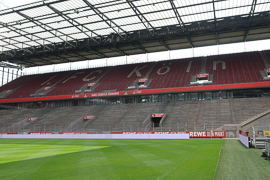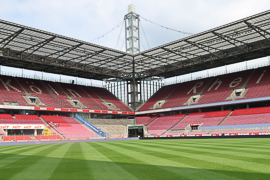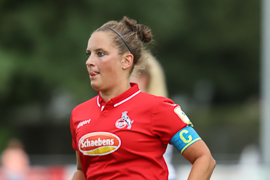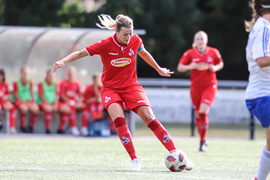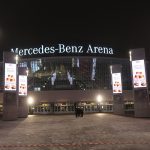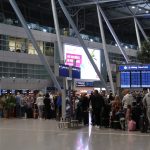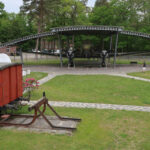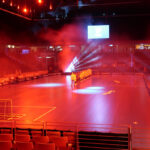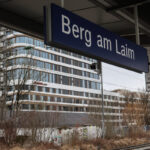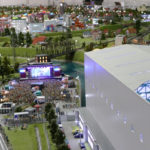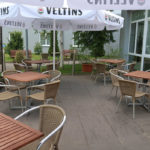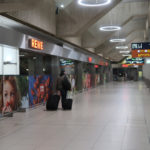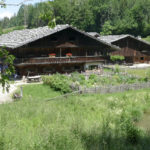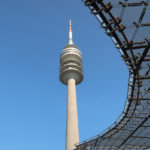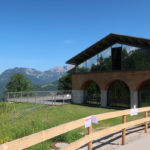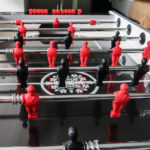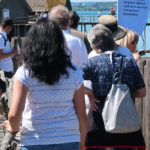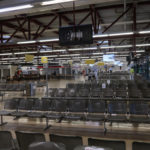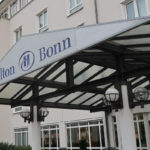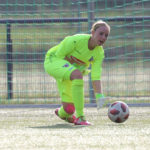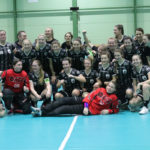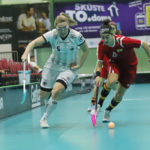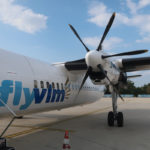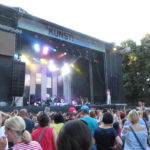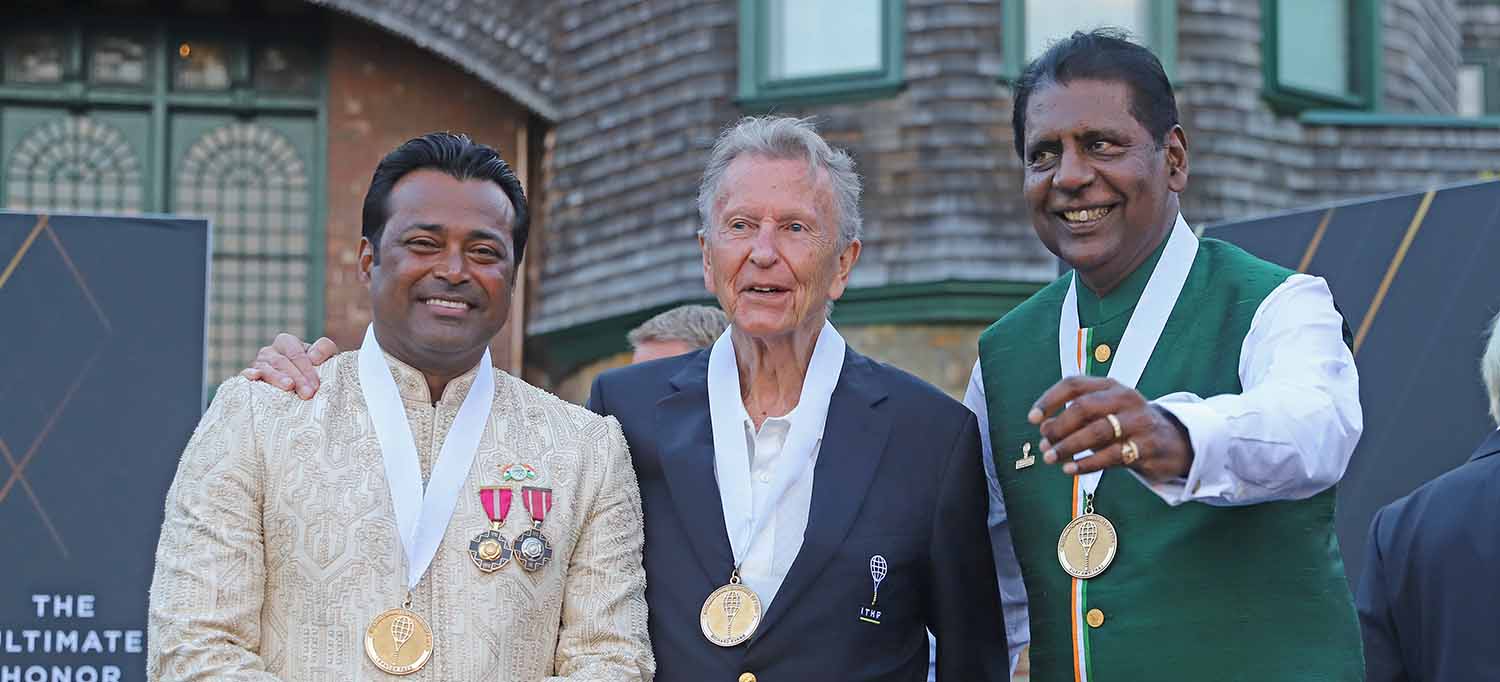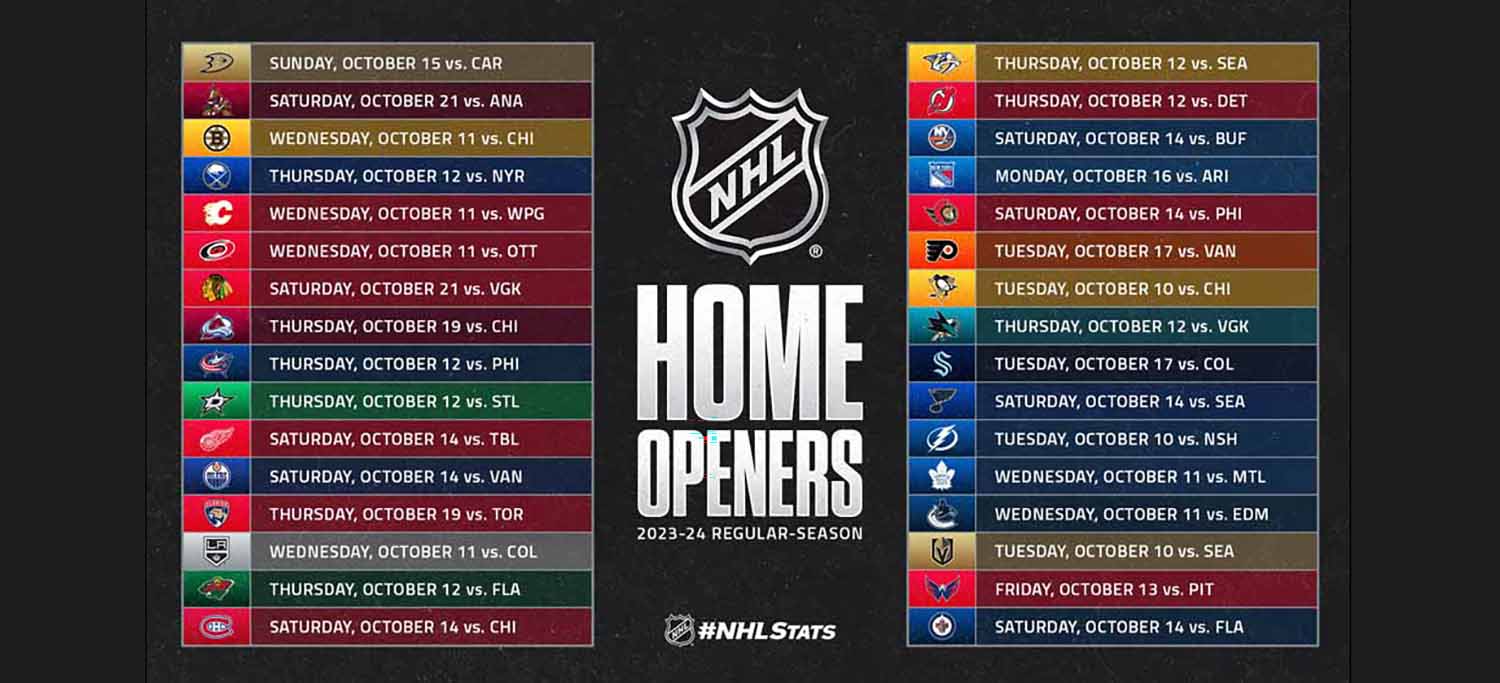Saturday, 16th May 2020, 15:30 hrs German time. The point in time at which the German Soccer Bundesliga was intended to have the final match day of the entire 2019/20 season. Now, it is the match day of the restart after Covid-19 locked down the country. Nine matches to go, the Bundesliga starts again and tries to finish the Covid-19 season. No spectators in the stadiums and a quite strict hygiene and control standard plan. I feel shaken about it. To be honest, I feel it is a terrible decision. During the Covid-19 crisis, I felt I should become more political and express my opinion and also my expertise as I am working in the life insurance business. Thus, this posting is about my view about this part of our life going back to normal.
Some two weeks after this posting, I wrote a dedicated positing about the re-start of the Women Soccer Bundesliga and the resistance against it by some players.
How the Bundesliga will go back to Business
If you are really interested in the detailed concept and are comparably fluent in German, you can read the 51 page concept which shall guarantee an as limited as possible risk that professional soccer players are getting in touch with the Covid-19 virus (it is explicitly not the aim of the concept to prevent that at all). Just to give you a flavor of all the rules in there, here is a selection of rules:
- The players, but also the managers, physios and other kind of staff and people around the team are tested regularly (pages 3 to 8)
- The stadium is split into three zones, the interior area, the stands and the stadium ground. In neither of these zones more than 100 people are allowed (page 10)
- There are only at most three photographers per match and ten additional members of press. There is no catering (and similar limitations, pages 12 to 14)
- The teams enter the ground separately: There is no handshake. During the equipment control before the match, the referee assistant has to wear a face mask. Only the active players and the referees (not: fourth referee) do not have to wear a face mask. No external catering is allowed. (pages 25 to 29)
- The players may not have a meal together during training. They have to stay quarantined together the last seven days before the season incepts. The players have to put their clothing to the washing machine on their own or clean their sports gear and shoes by themselves. The kit manager needs to wear protective gear while operating with these items (pages 38/39).
- When at home, the players are not allowed to have contact to people outside their household. They must not have visitors or use public transport. These rules apply for all people in the household. You shall do shopping as few times as possible. It should never be done by the player itself. (page 43)
In general, the rule is applying for all German professional leagues. With that concept, the DFL (Deutsche Fussball Liga – German Premier League) tries to ensure that the league is even finishing within the official closing of the season, end of June. The first match day after the Covid-19 break is, as said, next Saturday, 16th May 2020. There are two match days during the week – all other matches take place on the weekend. The season finishes on 27th June 2020. There is however no exact assignment to the exact days and times yet, apart from the first match day next weekend. Second Bundesliga is roghly playing according to the same match schedule, finishing their season on Sunday, 28th, according to the current schedule.
And what about the Refs?
Just now, when I am completing the final words of this posting, the referees likely receive their initial test results. In Germany, there are (officially) no professional referees, which means that the umpires still have an ordinary job. There were a couple of regulations for the referees as well, but overall, they could be a weak spot in the context. The Bundesliga has spotted this issue as well, referees may umpire matches of clubs in their own region (which is typically not allowed) and in worst case of a late positive test, referee assistants may lead the matches.
It just did not work as desired…
Already before the first match day, there was a bunch of problems.
- Before the teams went back to team training a number of players were tested positive on Covid-19. The first club to confirm Covid-19 cases was 1. FC Cologne (2 players, 1 staff member), Overall ten out of 1724 pre-team training tests (both divsions) were positive, only a few names have been disclosed. In that way, the concept seemed to have worked out well – though the infection rate of 0.5 per cent of the people compared to 0.02 per cent in whole Germany at that day was comparably high (even if you take a high number of unknown cases into account). The people were individually quarantined.
- 1. FC Cologne was the main actor of another early big Covid-19 story as well. After the positive Covid-19 cases have been disclosed, midfielder Birger Verstraete stated in an interview with the Belgian VTM (Belgian newspaper article in Dutch), that under these circumstances he is not too motivated to play soccer. One key reason is that his girlfriend is having a heart defect. He had to take back some of his comments, which lead to quite a lot of criticism among the Cologne fans towards his club, who supported their player in this situation.


- The key “scandal” of the pre-season has definitely been caused by Hertha BSC Berlin‘s player Salomon Kalou, who used Facebook Live to broadcast from the Berlin cabin. This time, you definitely do neither need to speak German or Dutch to find numerous violations against social distancing: players being too close together, no separation in the cabin, hand-shaking, too many people in the physio room. There were also quite some people who mentioned that the PCR test (Covid-19 test) you see in the video has been done incorrectly and thus very likely automatically leads to a negative result. Kalou was suspended from the team, there was surprisingly no penalty against the club, though.
- On 9th May, i.e. at a point of time at which the teams already trained as a team, 2nd Bundesliga team Dynamo Dresden stated two positive Covid-19 cases. As they could not somehow analyse the exact contacts of these persons, the local health authority (which is responsible for the Covid-19 handling) quarantine the whole team and staff for two weeks – which also means that Dresden will at least miss two scheduled matches and also will not be able to train together during that period. In the Sachsen state, in which Dresden is located, the incidences are significantly lower than in the German average.
- A week before the first match day, Borussia Mönchengladbach boarded the quarantine hotel on Monday, not on Saturday, which would have been seven days before their first match at Frankfurt. There haven’t been any sanctions on the club.
Especially the Berlin video made me think. This concept puts the key actors under a lot of pressure – you have to be extremely disciplined to keep that hygienic concept by the DFL soccer league. The key argument for the Bundesliga to continue was that it is the players’ profession – but can they act professional all the time in this situation? We all get emotional here and then in Covid-19 times – so does a million Euro salary allow them to “sell” their mental situation? I don’t think so.
Soccer Bundesliga is just a Business
Stop being romantic! Continuing the Bundesliga is not at all about sports. The fan does not count, he is just the cash cow which is giving the money (by watching games and thus consuming ads etc.). We are talking about a business decision only. Maybe the most exposed person in this discussion was Hans-Joachim Watzke, Business Executive of Borussia Dortmund. Already in very early points of the discussion, his statements were like “If we cannot play soon again, the whole Bundesliga will drown”. It is hard to judge from outside which contractual structures and risks the Bundesliga is economically and legally exposed to. To me, it sounds a bit like hubris and bad risk management. There are just limited reserves in case a season cannot be completed, the clubs are heavily dependent on the money they majorly generate from TV and marketing deals.
Maybe also the easiest way to generate money in the past, i.e. by selling players to other clubs before their contract expires, will likely become more difficult in Covid-19 times. Hard to exactly the key drivers for this massive fear and economic panic from outside, but it must be massive enough that the Bundesliga is risking their highest value: credibility. I am a fan of the Cologne team (though I have to admit that my last stadium match is quite a while ago…) – but if a club really busts economically, the underlying youth teams are still there, the stadium is still there – so there is always a huge potential to grow a new professional team at the same location. If the credibility of the league gets bust, soccer may be hit much harder.
Soccer is a Social Factor
One reason why I struggle with the decision of playing the Bundesliga again most is that there are not just 22 ordinary people on the pitch once a week who just do their jobs – like a baker, a waitress or a craftsman. They are idols, they are sending out a message to their followers. In the age of social media, they more or less do it permanently.
What is the message that the Bundesliga is sending out to Germany now? That soccer players are more important than bar tenders (and, of course, more important than any other professional sportsman in the country)? That you can beat a pandemic if you just invest sufficient money? I don’t feel people want to have that message now – and I don’t feel that parents currently do not want to explain their kids why they cannot go to their sports training, but the big stars allowed to play. Yeah, soccer is something like distraction, it is a piece of normality. But we are not in a normal world nowadays. I could even imagine that people feel more frustrated when they see the matches, because they are struggling with low payments from halted jobs they receive from the social care in the country. We just don’t need more people on the streets who demonstrate. And you could easily say that this is not only a German, but also a European decision.
No Superheros now, please!
This is not superhero-time at the moment. Some political leaders might know what I mean. We are having “standing that together” right now – now matter whether you are lucky like myself and can do your job from home or whether you terribly struggle because Covid-19 costed you your job or a lot of money. In a certain way, I am thankful to Kalou posting this video – at least he showed that in these moments his club was not a Superhero Squad at all… Including himself.
Just the Last Chapter to make it more ridiculous…
… at least in my point of view. So far, I just wrote about the 1st and 2nd Bundesliga. In fact, the whole DFL plan is also meant to be applied to two more leagues, the (Men) Third Division (“3. Liga”) for Men as well as the Flyeralarm Women Bundesliga. Both divisions are thought to maybe restart at the end of May, but this feels to become really chaotic.
A part of the Third Men Division teams do not want to play and still stop the season, with different thoughts what this would mean for relegation and promotion. Some teams state that the hygienic concept is too expensive and complex (which might tell something about their structure). The most significant issue, however, is that due to their local Covid-19 regulations, three teams, Halle, Magdeburg and Jena, are currently not even allowed to train as a team and thus would not have any opportunity to prepare for these first matches. It feels bizarre if you read suggestions like that they should move their team temporarily to another location for training and match days so that they are ready for competition. Münster already stated that they cannot fulfill the concept, as their doctors work on voluntary basis and have their own offices as well – so they cannot drop those to do soccer hygiene full-time.
Soccer for 800 people per Match included
In case you do not know the predecessor of Flyctory.com, sport-live.net, I should likely state that I was a huge supporter of women soccer and invested a lot of time and money into it over several years. I still have friends who play up to high national and international level or work in the top teams management.
But, overall, the most laughable fact about the professional soccer restart is that the DFL also pushed to include the Women Bundesliga to the restart plans. Just to give you an idea about what it means: the 3rd Men Division I wrote about had an average audience of roughly 8,700 people per match (see here). The players are undoubtedly professionals in it. The average for the Women Bundesliga this season, however, is about 900 only (see here). Even the most-visited team, VfL Wolfsburg, has a lower average than the worst team in that statistics of the “3. Liga”.
The Ladies are the Ultimate Special Treatment Proof
Women soccer had its audience in Germany in the early 2010’s, when Germany hosted the Women World Cup in 2011 and some matches went up to more than 50,000 spectators. The Women Bundesliga lost more and more importance the last years, only very few girls are fully professional players – thus, adding life support to that product is absolutely miserable to me. Making the ladies play is neither a step towards normality nor allowing the actors of 12 clubs to follow their profession – they do it during daytime already. The German Football Association DFB failed to take the right actions turn the Women Bundesliga into a fully professional league with adequate salaries ten years ago. The 300,000 Euro, which each club received from the DFL to continue this season will not change that status.


I have to say that I am very proud of my club, Cologne, that they were the only club who voted with abstention for these plans – voting against it would have been much more appropriate, though. To me, pushing the Women Bundesliga to be played is the final proof that soccer got that final treatment from politics that all the other professional sports did not receive. I feel that German politics made a great job during Covid-19 and everybody would have taken wrong decisions here and there in this situation – but this one is a big one. It is just too easy to use this decision against democracy and in order to increase frustration among the people. Here is a dedicated posting about the Women Bundesliga Re-Start, which took place on 29th May 2020.
If people feel to be treated unequally when they switch on the TV on 16th March 2020, afternoon, I can – unfortunately – fully understand that.
Sports Blogging on Flyctory.com
Here are all Sports Blogging entries (no match reports or similar) on Flyctory.com:

The Featured Artists - musicians, which are in special focus and also get a little more service and attention from ...

After I already introduced you to the track events and the field events of the athletics meeting of the Heinz-Steyer-Stadion ...

After I did a review by sports of the 2020/21 Toyko Summer Olympic Games, I have been at the 2024 ...

I did this kind of posting for the 2018 Winter Olympic Games as well as for the 2020/21 Tokyo Summer ...

The highlight of my trip to the Infosys Hall of Fame Open 2024 was of course the Saturday evening ceremony ...

The big moment is coming closer. On Thursday, 18th July 2024, the three inductees into the International Tennis Hall of ...

A very special week lies ahead of me. On Saturday, I will fly over to Boston and drive on to ...

The same procedure as every year. The day when the NHL is releasing their match schedule for the upcoming season ...

Wow, what an intense week. Flyctory.com felt like my former sports project, sport-live.net, the last ten days. So many match ...

In a short amount of time small field floorball boosted from a hobby and youth version of the sports to ...

I'm back! After having skipped quite a few ones, due to physical and mental reasons, I am about to fly ...

Since a couple of years, I have a group of so-called Featured Artists - musicians, which are in a special ...

In the life of a sports fan, there are those days you simply remember. Great victories and upsets, huge disappointments, ...

Even though I am German, I am not an overwhelming soccer (or, for major parts of the world: football) fan ...

Last week, the NHL released their schedule for the 2023-24 season. This typically means a bunch of work to me, ...

If you know me or follow my website, you also know that I might not be the biggest tennis fan ...

Even though I haven't been overwhelmingly optimistic about success on the sports side of the Indian tennis team at the ...

Every year, some time in June or July, I am spending hours and hours looking into flight schedules, checking out ...

The Winter Olympic Games 2022 are finished. I have to say, I am relieved. It may have been the two ...

The Summer Olympic Games 2020 in Tokyo are over. Two weeks of intense sports coverage are lying behind us. Definitely ...

After the 2018 PyoengChang Olympic Winter Games, I already felt urged to do my very own medal count of the ...

Are you currently also fascinated (or disgusted) by the Olympic Games? This posting is about cool sports - even though ...

A typical scene at the bett1HULKS tennis tournament during the last two weeks at Cologne's LANXESSarena: Alexander Zverev (who swept ...

After Novak Djokovic won the Australian Open 2020, charts like the one by below by the German Data Journalist Felix ...

They did it: the German Women Soccer Bundesliga (Flyeralarm Frauen-Bundesliga) re-started a few days ago, on 29th May 2020. I ...

Mlada Bolesav - a 44,000 people city in Czech Repiblic, some 65 kilometers Northeast of Prague. Though the city's history ...

You may have visited Flyctory.com the last days hoping to have some coverage of the Neuchatel World Floorball Championships this ...

The "Road to Neuchatel 2019" - as only the Swiss team is qualified for their home World Floorball Championships in ...

No floorball competition is changing that frequently like the Champions Cup. While previous season, six men and women teams each ...

Though I am a huge opponent of the Davis Cup reformations becoming active in 2019, I have to give in ...

There have been so many discussions about Rio 2016. Not just about whether the country itself is able to stand ...

Tianjin, China. Tennis Davis Cup, one of my most beloved sports competitions. He was intended to be the hero, the ...

Yeah, I have to give in: as a German, you just hated when there has been a race with our ...
Postings about Germany
Here are all Flyctory.com postings related to Germany:

Flemming Kühl called for the second time - and the stars of floorball made their way to Hamburg again. On ...

Before the all stars of floorball battled in the FZ17 All-Star Game, Flemming Kühl offered to have fun in the ...

I can hardly get that this week is over already. I had quite a busy time with a business trip ...

After the semifinals, it was time to determine the placements at the German Under 15 Floorball Nationals. Hosting TV Eiche ...

The last match of the German Under 15 Floorball Nationals was about to start. PSV Black Wolves Dessau and FBC ...

After the Saturday Group Matches (Group A / Group B), four teams were still in the Medals' Bracket on the ...

Six teams overall competed for the German Under 15 Floorball Champion in Bremen. While I already introduced you to the ...

I really like the German floorball post-season. First of all, there is the Street Floorball Tour, illustrating the sports to many ...

Independence Day weekend in the United States is slowing down the music market significantly. Thus, it has not been that ...

One of the genres I don't feature too frequently is rap. The German artist Montez grew in that genre and ...

I really loved Dasha at the C2C 2025 in Berlin. The US-American country-pop musician gave the German capital crowds an ...

Two trips to the United States, including my 6 US States and Nashville trip and a short hop to see ...

While my Song of the Week posts have been rather short the last weeks, this one will be a long one ...

During the last twelve years, I easily had something like fifteen to twenty nights in Las Vegas. Nonetheless, I was ...

Even though I comparably rarely stay in them, I typically like Leonardo Hotels. For a company event (rafting on the ...

I'm in Las Vegas this weekend, tour-chasing Weird Al Yankovic at his Venetian shows. I am also thinking a lot ...

The story of the rock band Terry Hoax is full of ups and downs. On 20th June 2025, they finally ...

I have featured major releases by the German blues artist Bad Temper Joe three times already. In my fourth review, ...

No, there is no typo in that album title. The sixth studio album of the legendary German duo Paso Doble ...

Returning from my Six US States and Nashville trip, having a business event in Munich this weekend and heading to Las Vegas ...

Time to go home. The last somehow two days of my Six US States and Nashville trip majorly featured my ...

As I am majorly busy - and exhausted - from my Six US States and Nashville trip, I am rather thankful ...

After I just gave you the preview of this trip so far, my road trip around Nashville was finally starting ...

I am just sitting at the American Express Centurion Lounge in Heathrow (LHR), ready to head to the United States ...

Nadu is an German artist, who is living South of Paderborn. After releasing two EPs, she shared her debut album ...

In order to visit three Rock of Ages shows in Duisburg in May 2025 (not the one I covered as a photographer), ...

Due to my new job, I did not travel that much and worked quite a lot from home instead. However, ...

On my trip to Bremen and Stockholm in May 2025, I had quite some time to spend before a Rock of ...

I am in Istanbul this weekend and spend some time in Türkiye. A lot of preparation is currently ahead of ...

Just seven years after the German band has been founded, Kupergold is already releasing their fourth studio album. Fasan Alarm is ...

On 21st May 2025, I headed to another Sound of Nashville show in Cologne. Caylee Hammack closed their short four ...

Good things last a while: a couple of factors lead to the situation that there have been almost two months ...

Discover 400 million years of the history of Earth - that's what the Zeittunnel ("Time Tunnel") in Wülfrath is promising. On ...

I did it at the beginning - and I (almost) was there when it closed down. I was very thankful ...

In my 22nd November 2024 Songs of the Week, I already shared Prophecy by Mary And The Sharks. The song is now ...

I always love to run into new names when it comes to country music. Hannah Köpf is from Germany. She ...

This week, I am having my final shows of the German Rock of Ages tour. After the intense musical and ice hockey ...

This time, my Friday also include an an album, which has in fact already been released. I featured Jetlagged already ...

At the end of the Women Handball Bundesliga season 2024/25, I made it to Ostermann Arena in Leverkusen again. As ...

On 12th May 2025, it was time to cover another Sound of Nashville show. Alexandra Kay headed to Cologne's Club ...

If I would have to name my favorite player I have seen playing for "my" Pittsburgh Penguins, this name would ...

In recent times, I ran into a couple of young and emerging artists from Saarbrücken and the German Saarland state ...

Truck Stop are one of the big names in the German country schlager scene. I already shared my thoughts about ...

Rock of Ages in Bremen, ice hockey in Stockholm and maybe (not yet confirmed) a concert in Cologne - I am ...

I really love Eggs Benedict. It is one of my favorite posh ways of having breakfast. How could I neglect ...

I had the idea to this post when I sat in the American Airlines Admirals Club at Pittsburgh Airport (PIT), ...

The weekend after I covered the Swedish Floorball Finals, I was somehow back to Sweden again. Cologne had Swedish artist ...

It has somehow been weird compiling the Songs of the Week for this week. My long list of tracks was ...

On 30th April 2025, it was time for another show streamed by Muxx.tv. While I have been at the Song ...

April 2025 is in the books. Another month full of new country release is done. The whole month came with ...

Even though they were struggling this season, Borussia Dortmund is one of the biggest names in German soccer. While I ...

As I am traveling to Sweden for the national floorball finals this weekend, I had to prepare my album reviews ...

A reflection about identity, metal health and the strife of the generation between millenials and Gen Z - that's how ...

Time for some metal from Germany: the band About Monsters are sharing their Hidden Dystopia on 25th April 2025. After their ...

Summer time is festival time. As there are more and more interesting shows coming up, I felt that it might ...

Having a Thursday evening flight with British Airways gave me a comparably rare opportunity for a lounge review at my ...

As much as Lordi is the band I featured the most in my album reviews, Miniatur Wunderland is taking some ...

While the US-American country scene was really active in releasing music, there were not too many new songs and albums ...

After I already took you on a Visitor Tour through Munich Airport (MUC) in a previous post, here is another ...

Gaststätte Stock again - some six months after I saw the Laura Evans show there in the lovely Teutoburger Wald ...

First Move - that's the debut album of the Spanish-German duo Luna Soul. They mix funk, soul and pop music ...

I had a rather mixed week this week - and that's somehow my new Songs of the Week edition is like ...

The 2025 Rock of Ages shows in Cologne (I visited all of them...) gave me the opportunity to have a closer ...

The Charité is one of the most famous and best hospitals in Germany. It is driven by the two key Berlin universities, ...

Going to Hamm in the Northern German Ruhrgebiet on 5th April 2025 felt like closing a major gap on Flyctory.com ...

There are not too many bands which I featured in three album reviews already. One of them is Palila from ...

The young German artist StiA had a quite good year 2024 with Flyctory.com. Two of her songs, Mr. Perfect (week of 5th ...

An intense week lays behind me. I started a new job on Tuesday and I am thus full of new ...

With the Country To Country Festival 2025 in Berlin, March had its key highlight already early in the month. Thus, ...

22 - a repdigit and thus a small anniversary in my Food I Had Onboard series. I have to admit that some ...

Super-crunch time in the German Men Floorball Bundesliga at the end of March 2025. While the ladies' play-off semifinals came ...

I always enjoy featuring debut releases, especially from German acts. This one is from a punk rock band from Hamburg ...

Whenever music is flagged as country music on the promotion platform I majorly use, I of course go for a deeper ...

Coming back from a trip to Krakow, I more or less immediately ran into the new releases as of 28th ...

I really like the German band Drei Meter Feldweg. I featured their album Durak in 2022 and also featured them a ...

As the Run & Fly Meeting 2025 in Dortmund was held in parallel to a Borussia Dortmund soccer match and ...

I have featured Florian Künstler and his songs multiple times in my Songs of the Week. The more, I was really ...

This week, Rock of Ages is in town. I am attending all six shows of the musical in Cologne. This limits ...

Right after I traveled to the handball matches between the Netherlands and the Faroe Islands (match in Torshavn / match ...

The 2025 Country To Country in Berlin took quite a lot of energy from me. On top of that, there ...

Country To Country 2025 in Berlin is in the books. Three days and the kick-off Bluebird Cafe session are over ...

Country To Country 2025 in Germany came to an end. The Sunday Main Stage (and the Spotlight Stage) hosted the ...

Three days of country music (or even four, if you include the Bluebird Cafe session on Thursday) are tiring and ...

The second day in Berlin was slowly coming to an end. Country To Country 2025 in Berlin hosted the second ...

Saturday in Berlin - the Country To Country festival went into its second day. 8th March 2025 again featured some ...

Welcome to the main event! While I really enjoy the daytime stages with the variety of comparably less popular artists, ...

Ladys and Gentlemen, welcome to the Country To Country 2025 in Berlin! After the Passionskirche in Berlin already hosted the ...

My weekend this week is dominated by the Country To Country Festival 2025 in Berlin. My report of the kick-off ...

6th March 2025 was time to kick off the Country To Country Festival 2025 in Berlin. While the main festival ...

The Wellerman gave fame to two bands almost in parallel in the early 2020's. While I already featured the Cologne show of ...

February 2025 is over - and it came with a lot of new music. In some of the weeks, I ...

There is one thing even the hardest (male) rock fans love more than an all-male rock band: female rockers. FRAUPAUL ...

Doing periodic music postings from places with a significant time differences to Germany is always a bit of a challenge ...

Another Sound of Nashville country concert right before I headed to Pittsburgh: on 25th February 2025, Drake Milligan had a ...

Watching a friend's musical performance there brought me to Bad Säckingen in Southern Germany at the beginning of January 2025 ...

In March 2023, I already shared Leony's debut album Somewhere in Between with you. Some two years later, the German artist is ...

On 24th February 2025, I traveled to my second handball match of the season. The TSV Bayer Sportcenter featured a ...

Big names and emerging artists - I love to cover the full range of musicians in my Spotlight interviews. This ...

Quite an intense time is lying ahead. As you see in my preview post about it, I am already preparing ...

In exactly two weeks, on 6th March 2025, Country To Country (C2C) Berlin is kicking off with the The Bluebird ...

Carly Pearce has been back to Germany. On 17th February, the last of her Sound of Nashville shows brought her ...

The long 15th February 2025 match day at Sportpark Nord in Bonn closed with the men's first teams' match between ...

At 15th February 2025, the German Floorball Bundesliga division came to the end of a regular season. My local club ...

Three times SSF Bonn vs. ETV Hamburg on one day - the Dragons had a very special match day towards ...

I had a quite frustrating week. My accreditation requests for four photography events, three sports reports an one concert, have ...

I recently forgot a name of a German country artist and had to google it. I started typically by looking ...

Andreas Dorau is back with a new album. On 14th February 2025 (Valentine's Day...), he is releasing his new album Wien ...

In contrast to the rather small range of field events, the Run & Fly Meeting 2025 featured quite a lot ...

Back to the Helmut-Körnig-Halle in Dortmund: after I had featured the Sparkassen Indoor Meeting 2024 in the arena next to ...

The floorball week in Italy exhausted me more than I expected that. While I hoped to built up a backlog ...

In my September 2024 Spotlight interview, I already introduced you to Frances Darling. On 7th February 2025, the German-US-American artist ...

It late January 2025, I introduced you to the third EP by the German artist Luna Morgenstern, Heartbreak Hotel. Luna and ...

In October 2023, I saw the German artist LOI on her debut headline tour in Cologne. Finally, the pop musician ...

After I had quite a lot of sports reporting at the beginning of 2025, January of that month did not ...

With my recent mileage run and the trip to the World Floorball Championship Qualifications in Italy, I had quite a ...

The World Floorball Championship Qualifications are in focus of my coverage this weekend. Nonetheless, I try to provide you with ...

It's about five years since the German band Larrikins have released their most recent album. The fifth studio album overall, ...

A mileage run is a flight or a series of flights which is majorly intending to gain miles at airlines' ...

I am on a trip through several European countries this weekend. Nonetheless, of course, it is time to have a ...

Michael Moravek already made it into my Songs of the Week thrice. The last time has been as of 10th January 2025 ...

Heartbreak Hotel is already the third EP by the German-Dutch artist Luna Morgenstern. After I shared my thoughts about her ...

Apart from the very inner city center, Stuttgart is a rather hilly German city. On one of their higher elevation, ...

I'm in Finland this week, featuring two floorball match. However, the Nordic country is not represented in my Songs of the ...

15th January 2025 has been a very special date for me. After years of being absent, I was back at ...

I typically prefer Hilton Hotels and my second-most flown airport so far is Frankfurt Airport (FRA). Thus, it feels quite ...

After my previous edition of the Songs of the Week more or less covering two weeks, this one is first full ...

It all started in August 2019 - and it has become a key delivery of Flyctory.com since then. The Country ...

While quite a lot of traveling is ahead of me during the next weeks, November and December 2024 was rather ...

In the frequent traveler community, especially in and around Germany, the middle distance Eurowings flights gained quite some popularity. Flights ...

I featured schlager artist Marie Reim twice in album reviews already. In 2020, I shared my view of her debut ...

After I skipped last week's Songs of the Week (and merge the three songs I had for it into this post), ...

I simply love the Miniatur Wunderland. You can hardly challenge that the scale model landscape and rail attraction is the ...

has come to an end - and my Best of posting is the one which is "traditionally" concluding the year. The ...

Time to look back to the Flyctory.com year of music, part 2. In my 30th December 2024 posting, I am ...

The first one of my Best of postings at the end of the year is always reserved for looking back to my ...

Covering the opening of the "Goldenes Oval" and the Dresden vs. Weißenfels Floorball Bundesliga match took me to Dresden in ...

There are not too many bands who dare to release albums a few days before Christmas. The more I was ...

These weeks at the end of December always tend to make me a bit of nervous. Will there be sufficient ...

There are just a few bands, which use Christmas time for album releases. The O'Reillys and the Paddyhats are a ...

The German artist Alless. (with a dot at the end) already had a major social media success this year. The ...

I am still struggling with the Christmas presents - I am really late with this thing this year. There are ...

The most famous Cologne band in the most important (and famous) venue of the city - how could there be ...

The Christmas season also offers the opportunity to focus on some artists, who might not make it into Flyctory.com reviews ...

After I missed two early December 2024 country music concerts in Cologne due to trips to Switzerland and the United ...

Being on some sort of Lufthansa farewell tour after I decided not to prolong my Senator status gave me an ...

6th December is St. Nicholas' Day in Germany. Children are getting some sweets, if they put (well-cleaned) shoes in front ...

My list of new song releases is really short this week again. There were not that few new releases, but ...

German artist Mense traveled through Spain for half a year. It was only himself, his wife and his dog Angus, ...

I had a quite turbulent and emotional November 2024. The more, I appreciated good music. Here is my overview of ...

Happy Thanksgiving (especially to my North American followers)! While the North American music market is currently rather concentrating on Black ...

In July 2023, I reviewed a very unique album making it to a full 5.0/5.0 rating on Flyctory.com. Germany's pop ...

In the second posting about the Autostadt in Wolfsburg, I take you to the VW ZeitHaus Museum (ZeitHaus translates to ...

On a Sunday in mid-August 2024, I visited the Autostadt ("Car City" or "Motor City"). Located in Wolfsburg in Germany, ...

Ladies and gentlemen (and all the others of course as well), we got it: here is my first Songs of the ...

On 20th November 2024, I was able to report from an artist I had on my "bucket list" for quite ...

Attending a conference in the city, I had one night at the IntercityHotel Mannheim. My typical choice, the Hilton Garden ...

Spending some time in and around Munich Airport (MUC), I also took the opportunity to have their Airport-Live-Tour, the basic bus tour ...

Und was, wenn nicht ("And what if not") is the second solo EP release by David Gramberg. However, the German ...

The holiday season is typically also prime time for Best of albums. Lauschangriff is a collection of the biggest hits of Heinz Rudolf ...

Are you already counting down the days to Christmas? You definitely feel an impact on the music industry of the ...

Sometimes, when I scan new music releases, I run into songs or albums, which simply make me smile. One of ...

Derby day in Hamburg: after ETV Hamburg's second team had faced TV Eiche Horn Bremen in the match before, their ...

ETV Hamburg vs. TV Eiche Horn Bremen - this match feels like such an icon in the German floorball scene ...

The first full week of November definitely kicks off the album season of the year. I have been loaded with ...

Club Volta again - just three days after I featured the Stephen Wilson Jr. concert there, I was back at ...

Having a hike with alpacas? This kind of free time activity becomes more and more popular, in Germany. Organizers argue ...

Time for some country music concert coverage again: On 4th November 2024, I headed to Club Volta in Cologne. Sound ...

After the women's match against Erlensee, SSF Dragons Bonn had another very interesting match-up on 3rd November 2024. Their home ...

Whole I struggled with squeezing floorball matches in Germany into my schedule in previous seasons, the 2024/25 provides a schedule ...

Halloween in North America and a public holiday in the rather catholic parts of Europe - the music industry has ...

My new way of presenting my Country Music Picks, i.e. having a focus on new songs, which I just did not ...

Exactly eight years ago, I flew SAS Scandinavian flight SK 626 from Dusseldorf (DUS) to Copenhagen (CPH). Not a really ...

Just two months until Christmas. Times are getting colder (at least on the Northern hemisphere), people spend more time inside ...

As I didn't feel like taking the night ICE train after my August 2024 trip to Dresden from Berlin to ...

While my 18th edition of the Food I Had Onboard just came with a limited number of trips rather widely ...

Hungary this weekend! After my trip to Indonesia, I am back in Hungary after such a long time of absence ...

I really enjoy riding the Railjet. The type of trains is majorly the backbone of the Austrian high-speed rail network ...

I haven't done a "Review Battle" for quite a while. Today, I am comparing two hotels of the same brand ...

It is already three and a half yeas ago since German schlager artist Vivien Gold released her most recent album ...

The German band Suzan Köcher's Suprafon was in the news recently for a very tragic reason. While the band was ...

Propaganda defined the German synth-pop scene in the 1980's. After three break-ups, they are back with a new album in ...

I am writing this post from Abu Dhabi Airport (AUH), I will likely publish it from Doha (DOH). A cool ...

Watching a musical show with a performer I know brought me to Bielefeld in September 2024. Due to my Accor ...

I am currently on my first trip ever to the Southern Hemisphere. As expected, the German music market on 4th ...

Wolfsburg might not be the first place which comes to your mind when you think about German touristic hotspots.. However, ...

The country music September 2024 is in the books. At least in regards of my Country Music Picks, which feature ...

Just the evening after the Visions of Atlantis show in Essen, I headed to the E-Werk in Cologne. On 29th ...

Last week, Frances Darling had a big day in her young career. With the song Flight Risk, the US-American-German artist released ...

Finally, I made it - after featuring so many concerts of different genres, I headed to Essen in the German ...

I loved Bell Book & Candle in the late 1990's. The German band from Berlin especially stroke with their debut ...

I had a very tough business trip to Paris this week. Nonetheless, I somehow managed to compile this list of ...

Another year, another time for Rock of Ages. Similar to the previous years, I disclose some of the international dates I ...

After I already featured the Dresden vs. Weißenfels match at the first match day of the German Floorball Bundesliga, 22nd ...

My Songs of the Week fascinate me not too rarely by myself. I collect potential candidates for the playlist and release ...

From time to time, I simply enjoy having a night in Cologne, between two office days close to the office ...

"Stand Up! Keep going!" is the (translated) title of the new album by Sebastian Krumbiegel. The featured singles of the ...

I did not have that much traveling during the last weeks - but as some major trips are ahead, I ...

Maybe it is because I had to do some long evenings to prepare my Media Review coverage for the weekend of ...

Damn, I miss the Faroe Islands. I had a lovely weekend there last week. In the meantime, the weather and ...

I absolutely loved the intimate, personal, but also very professional atmosphere of the Jessica Lynn show at the Muxx.tv grounds ...

Medieval music, metal style - the German band In Extremo is really successful with this rather rare blending of genres ...

Being the only guest in a lounge almost demands me having a lounge review. This happened to me in Dresden ...

I does not happen too often that I set up a new edition for my Songs of the Week and decide ...

Quite a short list this time - as a couple of releases I got simply did not meet my criteria ...

After I covered the Muxx.tv show by Jessica Lynn in Erftstadt, I felt that I should also just visit one ...

After I already introduced you to the track events and the field events of the athletics meeting of the Heinz-Steyer-Stadion ...

As Floorball Deutschland typically releases the match schedules for the German Bundesliga rather late (even significantly later than the clubs ...

After I featured the "Goldenes Oval" Opening Meeting track events in my first posting, it is time to have a ...

Dresden is back on the list of major venues for athletics events. On 30th August 2024, the capital of Saxony ...

I still don't really manage creating a proper backlog of already prepared posting. Thus, the last weeks have been very ...

Stanovsky is "greenish" - at least if you base that statement on the title his new album Grünlich. On 30th ...

After I had a country and country rock block the weekend before, it is time to add some harder tunes ...

In my Songs of my Life postings, I love to share songs with you, which you might not have in ...

With Dear Robin, I am having a look at a German rock band in this review. On 30th August 2024, ...

After I already introduced you to the Dresden Suspension Cable Railroad (Schwebebahn), it is urgently time to share my other ...

After a one day break, the Sound of Nashville Open Air2024 was back in Cologne. Sunday, 25th August 2024, featured ...

Country-rock made in Germany - there are not too many acts in my home country who are able to deliver ...

Time for another episode of my Songs of the Week. This time, there is a fine mix of different genres again, ...

Meg Pfeiffer popped up here and there in my Flyctory.com postings. On 23rd August 2024, the German singer-songwriter, who is ...

The Sauerland in the Western part of the German state of North Rhine Westphalia (Nordrhein-Westfalen) is very popular as a ...

Having a nice walk in the (somewhat) nature and meeting some animals out there - the weather was just too ...

In order to cover the German Athletics Nationals 2024, I needed to have a three night stay in Braunschweig. I ...

The final straight of the promotion campaign for Anna-Carina Woitschack's 2024 album kicked off with a very explicit event. You ...

This week is in focus of Jessica Lynn. I saw her show near Cologne on Monday and visited another concert ...

After featuring the Giovanni Zarrella concert the week before, another very special show was on my list on 12th August ...

After I did a review by sports of the 2020/21 Toyko Summer Olympic Games, I have been at the 2024 ...

I did this kind of posting for the 2018 Winter Olympic Games as well as for the 2020/21 Tokyo Summer ...

This edition of my Songs of the Week feels like a ballad edition. There are a lot of gentle and emotional song ...

After I had quite an intense series of concerts in May 2024, there has been quite a break in my ...

You cannot over-estimate the performance of German Viktorija Cesonyte. After she won the almost three hour girls singles final at ...

After the epic girls singles final, the boys went to decide their singles winner in Düren. At the Internationa German ...

After the dramatic girls singles final, the second match I present you from the Tennis Europe Super Category tournament in ...

On 3rd August 2024, I headed to Düren, some 50 kilometers West of Cologne. My aim was to cover the ...

Summer vacation season in Germany, national holiday in Switzerland - the music industry obviously felt (or was right) that this ...

My Country Music Picks are back! I just felt that there is so much more music I want to cover ...

Getting a hotel in or around Mönchengladbach should typically be not too much of an issue. However, when I wanted ...

The German Olympic Sports Confederation (Deutscher Olympischer Sportbund) hired a complete stadium for their events during the Paris 2024 Olympic ...

What a week - I returned from my tennis coverage in Newport, now I am at the Olympic Games in ...

Ben / Benjamin Moske is a quite well-known artist in the Northern German singer-songwriter scene. His songs are influenced by ...

Oh, I traveled too much the last weeks again. Time for another Food I Had Onboard posting - this time also featuring ...

I have stayed at the Mercure Hotel Düsseldorf Ratingen a couple of times before my night in June 2024. However, ...

I am loaded with tennis work this week. The time in Newport, Rhode Island, featuring Indian tennis and the induction ...

On 14th June 2024, I featured Marc Albrecht for the first time in the episode of my Songs of the Week ...

My bags and cameras are packed, I am ready to head to Newport for the Infosys Tennis Hall of Fame ...

The fifth and last posting from Mönchengladbach features the Sunday track events of the German Under 18 / Under 23 ...

Sunday 7th July 2024 was the last day of the German Under 18 / Under 23 Athletics Nationals in Mönchengladbach ...

Saturday 6th July 2024 came with the longest schedule of the German Under 18 / Under 23 Athletics Nationals. There ...

After I had a combined report of all events of the first day 2024 German Under 18 / Under 23 ...

The weekend I traveled to the German Athletics Nationals 2024 in Braunschweig, Mönchengladbach hosted the next national top athletics event ...

This week, my Songs of the Week are full of pop tracks. There is a lot of sports coverage on Flyctory.com ...

Rather early before the release date of 5th July 2024, I ran into the EP Neue Wege by German artist Jonas Green ...

On the weekend of 5th July 2024, I feature some interesting releases by German artists. One of them is T.G ...

Bad Temper Joe is one of the finest German blues artists. I have covered his releases twice already, One Can Wreck ...

After my field event coverage of the first day in Braunschweig was rather limited, I hoped that especially the Sunday ...

After the first day of the German Athletics Nationals 2024 in Braunschweig had been really warm and sunny, there were ...

Compared to the outfield positions in Kassel the year before, the German Athletics Nationals 2024 were a bit of tricky ...

The week after the Mehrkampf Meeting Ratingen 2024, I was back in athletics already. Braunschweig was calling for the German ...

I feature athletics events three weeks in a row before I head to Newport in Rhode Island for tennis coverage ...

Germany is famous for its car manufacturers. With Porsche and Mercedes, Stuttgart is likely one of the key cities car ...

German Till Steinforth lead the competition after the first day of the Stadtwerke Ratingen Mehrkampf Meeting 2024 decathlon. However, there ...

Three events left until Ratingen would be able to crown their queen of athletics. There were still three events left ...

The Decathlon in Ratingen was held in parallel to the Heptathlon event. Of course, the male athletes were competing to ...

I have really been looking forward to the weekend of 22nd and 23rd June 2024 for a while. Even though ...

Somehow, I can never now if the upcoming week is a "good one" or "bad one" regarding new releases. While ...

The press kit to the debut album Integration describes the music of Command0 as an exploration of spacey synths, big beats and ...

Why is already the second EP release by the German artist and band Veigh Malow. The release of their debut EP ...

Quality over quantity: I indeed had quite a bunch of candidates for this week's Songs of the Week. However, there are ...

Doing hard rock with a saxophone? Human Zoo simply do it! On 14th June 2024, some eight years after their ...

As I am traveling to the United States rather frequently and also love to follow Feli from Germany (formerly German Girl in ...

Atlantis Drive is a brand new hard rock band. The roots are from Germany, but the band features international band ...

A rail strike destroyed our travel plans in and around Munich in March 2024. Thus, on a rather short notice, ...

For Charles Esten's show in Hamburg in May 2024, I needed a hotel in the Northern German city. I chose ...

Publishing my Songs of the Week right between two Rock of Ages tour legs would suggest that the song is full of energetic ...

On a promotion platform, I ran into the album Exit To Insight by the German band Deafcon5. The album is already ...

Marianne Rosenberg is truly a legend in the German schlager and pop scene. Her career is impressing. However, I never ...

Munich is always a special place to me. As parts of my family roots are from there, I always feel ...

This week, I am in Munich, watching a couple of Rock of Ages shows. The week is more busy and demanding ...

In 2010, Germany fell in love with a 19-year old lady. Lena managed to do what somehow felt impossible for ...

I follow Andreas Dorau and his music since the mid-1990's. The more I was happy to be able to cover ...

After the 2023 edition of the #TrueAthletes Classics took place at the end of July, TSV Bayer Leverkusen hosted their ...

I so far featured the German pop artist Sasha only once, with his children album Toto und der Mann im Mond ...

When scanning new releases as of 24th May 2024, I was running into a very interesting release by a German ...

This time, selecting the leading track of my Songs of the Week was really troublesome. Three candidates have already been released ...

Right after I returned from a weekend trip to Norway, my home town Cologne hosted another really interesting country music ...

Three years ago, I introduced you to the album True Stories by Jack McBannon. Despite his artist name, the country ...

I had quite a lot of travel in recent times - so there is time for a new Food I Had ...

I already featured the band Ochmoneks twice in my Songs of the Week, on 9th June and on 7th July 2023 ...

Returning from the World Floorball Championships in Finland, heading directly to a business trip to Paris - this week was ...

Wow, what an intense week. Flyctory.com felt like my former sports project, sport-live.net, the last ten days. So many match ...

On the men's finals side, I concentrated on two matches of the final 3x3 World Floorball Championships match day. From ...

A German team competing for the medal - the effort of the German national team at the 3x3 Floorball WFC ...

After my first posting about the debut event of the 3x3 World Floorball Championships was about the first day of ...

In my introductory posting, I already introduced you to the concept of 3x3 Floorball and the first World Floorball Championships ...

Despite the World Floorball Championships coverage, I of course want to keep my Songs of the Week updated. Due to the ...

By beating New Zealand and Australia, Singapore had already practically saved the spot as the best placed Asian / Oceanian ...

I over-estimated the travel time from Helsinki, so that I indeed made it to the first Under 19 WFC match ...

The history of Berlin nowadays is also a story of two airports which have been closed down in the meantime ...

End of April and beginning of May 2024 featured a couple of very interesting country music gigs in Germany. For ...

End of April and beginning of May 2024 came with quite some photographic dates for me. Right after the Carrie ...

There is a lot of traveling around during the next weeks. Unfortunately, I could not cover some concerts, which I ...

After I had a one show stay in Vienna, it was already some three weeks since I had seen Rock of ...

Snow in April! After I had some snowfall after the Swiss Floorball Superfinals (my coverage of the women's match / ...

Especially in summer, East Frisia and the East Frisian Islands on the German North Sea coast are very popular tourist ...

Taylor Swift, Pearl Jam and many more - this weekend is packed with great new album releases. Nonetheless, the week ...

What an honor - Darius Rucker kicked off his Starting Fires Tour World Tour in my home tome Cologne. The Live Music ...

Meeting with friends in Troisdorf between Bonn and Cologne in the evening and relaxing at the Wellnest private spa Bonn ...

It's been quite tough for me this week to keep Flyctory.com up and running. I had a stronger cold this ...

In my fifteenth edition of my Food I Had Onboard posting series, I have a quhttps://flyctory.com/tag/deutschebahn/ite nice range of flight and ...

This week, I am returning from a really cool Pittsburgh Penguins ice hockey trip along the East Coast. Maybe that's ...

The German rock band is already active since more than two decades. Not too surprisingly, the band is having quite ...

After having visited their outlets in Essen and Cologne already, my wife and I made use of Good Friday 2024 ...

12th March 2024 brought me to Bochum in the German Ruhrgebiet. The city hosted my very first Rock of Ages ...

That's all? That's roughly I thought when I finally had a rather short long list of candidates for my Songs of ...

Lautstärke is a German band, which is doing German lyrics rock songs with a touch of punk. On 29th March ...

This year, I take you on my tour-chasing of the German Rock of Ages musical. The first trip report episode ...

At the time when I started writing this posting in early March 2024, Flyctory.com already featured reviews of over 320 ...

I am closing my reviews as of 22nd March 2024 with a German artist. Being Anne (typically written in small ...

After I shared my Bochum Rock of Ages thoughts with you already, I am just about to have eight show streak ...

For the second part of my "review battle" of museums dealing with visions around the future, we leave the Museum ...

Frank Renfordt is back - and this time he is wearing his cowboy hat again! The Cumberland River Project releases ...

Typically, my trip reports are about one travel. Sometimes, there are one-day stories like the 24 hour train ride through ...

The German band Brokof is active since 2007. They established in the German music scene and already released five studio ...

A lot of traveling is ahead of me. I just returned from a trip to Bochum, watching my first two ...

I typically receive quite a lot of jazz promotion. However, I rarely find albums and EPs which I really enjoy ...

The Cumberland River Project is on the final straight towards a new release. On 22nd March 2023, Frank Renfordt and ...

Germany is sunk in strikes of different kinds, mainly in transportation business. I have been impacted this week by that ...

The name is already suggesting: this one is the debut album of a band named Pawn Painters. The German act ...

Right the day after the Sound of Nashville show in Cologne on 5th March 2024, I headed to Frankfurt. Again, ...

France, Tunisia, Saudi Arabia and Malaysia - I am just coming back from a massive aviation trip, which is the ...

Which genre are you thinking about when the arrangement solely consists of a piano, a cello and a vocalist? If ...

Just two weeks after I featured the Dümptener Füchse women's team at Erlensee, I had them on my schedule again ...

I struggled a bit compiling the Songs of the Week this time. The partial flight miles for my current trip ...

In June 2021, I shared the album Guns Against Liberty. The band behind that album is the Hamburg-based melodic hardcore act ...

The Selfkant is truly a remarkable municipality in the very West of the Federal Republic of Germany. The border to ...

As I knew it would be rather late after I visited the TSV Erlensee Floorball Bundesliga home matches vs. Dümptener ...

With Be Okay To Not Be Okay, I present you another debut album from Germany. While you might not know the ...

February 2024 is quite an intense month for me. Even though the trips I have planned and done are comparably ...

The second match in the Großsporthalle Erlensee on 17th February 2024 was a match in the South-West division of the 2nd ...

As part of my initiative to have more sports coverage in 2024, I traveled to Erlensee on 17th February 2024 ...

Coming back from the United Arab Emirates and about to head to Malaysia soon - thus, some really interesting experiences ...

I always enjoy sharing some new German artists with you. This time, I listened to a debut album by the ...

When I introduced you to the Audi & Siku Museum Höing about three years ago, you already saw that the ...

My trip to the handball matches at the EHF Euro 2024 preliminary round matches in Berlin did not feel being ...

Carnvial in Cologne - and I am in he United Arab Emirates this weekend. It is rather party season, no ...

I am always a bit of extra-flattered when my most frequently used promotion platform shows an album by a German ...

I am always flattered when there are new, interesting German acts who are releasing country music. This week on Flyctory.com ...

Having dinner with some frequent traveler friends in Frankfurt lead to a one night stay in the German city, famous ...

With the ISTAF Indoor 2023, I kicked off my campaign to intensify my athletics coverage in 2023. The more, I ...

January 2024 has already passed and we are running into the first February 2024 edition of my weekly release radar ...

Especially after I reviewed the amazing album Das ist keine Übung in October 2023, I was really looking forward to see Alex ...

Slope are doing a quite rare mix of metal, hip hop and electronic sounds. The band developed their style during ...

Quite early before the release of Reliquien, I receved the first press information about the debut album by German artist ...

There are a lot of zoos and animal parks in the Rheinland and Ruhrgebiet region of Germany. The TerraZoo in ...

This review is about some singer-songwriter pop from Germany - more precisely: quite from the Rheinland area I grew up ...

In the relations of my home town Cologne, we are celebrating a big Songs of the Week anniversary with this edition. My ...

I still feel that in many athletics meetings, the track events are somehow still more in focus than the field ...

After a few mentions in my Songs of the Week, I was really looking forward to listen to the new album ...

After I had already flown the Airbus A320 simulator by Aerotask in Essen, I was really looking forward to my ...

Wernigerode being located right North of the Harz mountains might not be the most obvious location for an aviation museum ...

On 6th January 2024, I have been in Switzerland to cover two floorball matches, Zulgtal Eagles vs. Visper Lions and ...

Getting into the FInal4, the semifinal and final event of the German Floorball Cup, is likely one of the most ...

After I gave you my report of the field and side events of the 2004 Sparkassen Indoor Meeting in Dortmund, ...

In general, I plan to increase the frequency of my athletics coverage during 2024. The first event of that sports ...

This week, I published how I feel to concentrate on one Country Music Playlist - at least until I found ...

This week, I am dealing with quite a lot of music postings during the week. There are two reasons for ...

There is hardly any more controversial topic between my wife and I than music by Andreas Dorau: while I feel ...

Seeing one of the very first appearances of the Faroe Islands at a EHF Euro in handball just felt too ...

This time, my Songs Of The Week consist of 14 new releases as of this week. The Christmas break is definitely ...

Andreas Dorau is one of the artists I follow for the longest time in my life. In 1997, just when ...

Happy New Onbaord-Food Year! At least, there is one flight experience from 2024 in this posting already, a Lufthansa Business ...

While I still had a rather short list of album releases, there was already quite a lot of stuff for ...

The Christmas weeks are typically the ones with the lowest number of releases. Unfortunately, quite the majority of the songs ...

Is it really New Year's Eve already again? The last day of the year? I am posting this one in ...

Yeah, I am still more of an album person. I feel that a long-play is still able to tell stories ...

It's time to look back to . After I shared my new format My Year in Travel with you the first time, ...

Irish folk rock made in Franconia, Germany? Fiddler's Green proof that this can be quite a success. With The Green ...

It's Christmas Eve, the main day of the Christmas celebrations in Germany. However, all the holiday songs seem having been ...

I already featured the Nuremberg-based band Strife 85 twice in my Songs of the Week this year. Right before the holiday, ...

Typically, there are two sorts of album reviews at Flyctory.com: I received the vast majority of reviews as a promo ...

I already introduced you to the Museumkaart in the Netherlands, which may be a very profitable (but a bit of ...

Staying at the ibis Budget Aachen Raeren Grenze has been a hotel night I have been looking forward to do ...

The Christmas countdown is steadily running to zero - which more and more means that new releases get sparse. I ...

A vacation album? The title Urlaub in der Bredouille sounds like a road trip album to some French region... But ...

A big name in the schlager business: 41 years after Andreas Martin releases his very first studio album, he is ...

Aufbruch is a very interesting EP release from Germany as of 15th December 2023. The band recording it, Ticket To Happiness ...

Not only during the carnival season, music is a core part of the identify of my home town Cologne. Thus, ...

As you know, I am very interested in iconic public transport systems. Thus, I had to visit the Schwebebahn, the suspension ...

His show in Aschaffenburg 2019, the main stage appearance at the C2C Berlin 2020 and now Cologne 2023: Eric Paslay ...

John Garner - this musical act name sounds like a solo artist, but is in fact a quintet. The German ...

Unfortunately, I could not complete the Country Christmas Playlist this year due to technical issues. However, since the days become ...

Chinese lantern shows and other illuminations have become more and more popular in Europe during the recent winter seasons. In ...

I am a bit of angry as the tool I loved to use to scan for new country releases does ...

December, when the frequency of album releases significantly decreases, is also a time for me to have some more outside-of-the-box ...

Even though the soil in Monheim was quite muddy, the Ben Zucker concert I had there in July was definitely ...

Especially during the last months, I felt again how much interesting music is coming from Hamburg. The city in the ...

Willow Parlo's Facebook profile states With the window open, Willow Parlo turns the backdrop of the depressing and monotonous city ...

Afrer his very interesting album release Going Solo, I was really curious about how Gergor McEwan would be alike live on ...

Typically when I fly from the B Gates at Frankfurt Airport (FRA), I love opting for the Air Canada Maple ...

Before I have just been close to the NH Collection Hamburg City, I knew that this hotel will give me ...

After my previous Songs of the Week editions were rather pop-alike, I was rather surprised that my release radar this time is ...

The clumsy yet unswerving attempts of being an artist - that's how Jules Atlas describes himself on his Facebook profile ...

The Nacht der Gitarren concert series with Jim Kimo West took me to quite some nice places in late 2023. I had ...

London, Faroe Islands, another trip tp England, Sweden, USA - the last weeks of 2023 involve quite a bit of ...

After his 2019 album Traveling Son and the 2022 Take it Slow, Memories is already the third Michael Lane album I cover ...

I am typically glad to run into new bands and interesting acts. A few weeks before the release, I received ...

For the music review weekend of 24th November 2023, I picked a bunch of rather new German acts in my ...

Wacken could be just a normal village on the countryside of the German state of Schleswig-Hostein. However, when you mention the ...

There are so many art museums and technical museums out there. However, do we really care sufficiently about the items ...

After their debut album Hollow Throne has already been successful, the German melodic post hardcore band Maelfoy is releasing their sophomore album ...

In order to cover the Home Free concert in Hamburg in September 2023, I had a night at the ibis ...

Oh, Christmas is approaching quickly now. A huge number of songs I scanned for my Songs of the Week this time ...

When I started listening to the album UWE of the German band Frollein Motte, I liked their cheeky and straight sound. You ...

How could I ignore am album starting with a (for me) very special song released on a (for me) very ...

After my eleventh Food I Had Onboard posting majorly concentrated on two Lufthansa First Class legs between Frankfurt (FRA) and ...

TraMy trip in late October / early November 2023 involved a lot of traveling. Once I made it back to ...

I had a short trip to Hamburg this weekend, watching my last Nacht der Gitarren show (see my Reutlingen show report) ...

Sonia Liebing established in the wider range of well-known German schlager artists the last years. On her homepage, she is ...

Finn & Jonas are twins. They are doing German indie-pop songs. After they grew regionally and have a national fan ...

Just as it felt convenient to stay somewhere closer to the office where I work, I had a night at ...

I had a quite intensive week, exploring several interesting rail trips as well as being back in Pittsburgh and in ...

Source is the fourth album by the German band Alphawezen. However, the most recent album release has happened fourteen years before ...

I always love being able to look into new names, new sounds, new bands. This one is about the rock ...

Roberta John Joni Mitchell is a Canadian-US-American singer-songwriter, who majorly did folk and pop music in her career. She has won ...

A very interesting part of visiting Heidelberg Castle is the Deutsches Apothekenmuseum, the German Pharmacy Museum. It is giving an illustrative ...

Luke is a German artist and band, who are doing blues rock and Americana rock music. After two EP releases, ...

The two world wars have caused significant damage to most German cities - especially those with a somehow-strategical meaning. Thus, ...

Halloween is not that much of a big deal in Germany - but some parts of my home country have ...

40 years of Doro Pesch on stage - I really feel a bit of bad that I am not in ...

Having a cheap hotel close to the main station after the Kelvin Jones concert in October 2023. My aim, when ...

Just two months until Christmas. You feel that in my this week's edition of the Songs of the Week definitely. First ...

Myle is a rather new artist from Southern Germany. On 20th October 2023, the pop artist is releasing his debut ...

Just about a month after I saw Randall King at the Cologne Club Volta, I was back there again on ...

In order to to cover the local Nacht der Gitarren show, I headed to Reutlingen in mid-October 2023. As the weeks before ...

Before we checked out the new Wellnest private spa in Cologne, my wife and I felt it is a good ...

At the end of September, some miraculous things were happening on the Instagram accounts of the Country To Country Festivals ...

I felt it is a good time to publish my next episode of Food I Had Onboard in this week in ...

I spent almost the entire week at work in Dublin at one of our offices. Quite an intense time, which ...

Finally, he is in Germany! I was so excited to see Jim Kimo West at the Nacht der Gitarren ("Night of the ...

Despite the album Collections being his debut one, the Southwest German Sebastian Schaffer is not a "newbie" at all. He ...

FRAUPAUL is a rather new band from Hamburg. Recently, I ran into some of their songs of the second EP ...

After my wife and I overall had a nice stay at the Wellnest Private Spa in Essen, we were curious ...

After I had the opportunity to see Kelvin Jones at the Heart To Heart show in Dusseldorf and the preparing ...

Maybe, due to the national holiday in Germany, the list of new songs was rather short on the platform I ...

The Geschwister Hofmann (namely: "Hofman Siblings") have been a German schlager duo of two sisters. From their first stage appearances ...

It's already five years ago since Antje Schomaker released her debut album Von Helden und Halunken. The feature singles to her ...

In 2021, I introduced you to Alex Diehl the first time. That year, he released the amazing EP Die Songs, die ...

Golf? In Germany, the sport is rather regarded to be elite entertainment, a free time activity for the rich. Our ...

Unfortunately, I had to kick out quite a lot of songs from my list, which I really liked. They just ...

Sacropolis is a German-French indie-pop project. However, the members are not coming from the Saarland or any similar close-to-the border ...

Big release day for Collapse Under The Empire: with Recurring, they don't just publish their tenth studio album overall, the German ...

I recently ran into the music of German artist They Called Me Phoebe for the first time. The more I ...

Schrobenhausen North of Munich is typically known for as one of the German centers of asparagus farming. The city is ...

There is somehow always some sort of "topic" behind each and every Songs of the Week episode. If I would pick one ...

Busy times: just three days after I saw Home Free in Hamburg and eight days after the Randall King show ...

The story of the hard rock project Rising Wings is indeed a rather unique one: the band was already active ...

Getting to the Seepark Biker Days 2023 in Pfullendorf required a rental car from Stuttgart Main Station to the town ...

Home Free - the a capella country band has built a fan base all over the world nowadays. I was ...

When Swiss International Air Line recently released the seat map of their new Airbus A350 fleet, a real advantage of ...

The Songs Of The Week is one of my favorite categories of posts on my blog. Even I don't know how the ...

It is just mid-year 2023 and I already start working on my 2024 Rock of Ages International Tour list. I am sure ...

I love small regional air service like the Essential Air Service in the USA or flights to small and rather ...

Wow - I had so many albums this week. Even if I skipped all travel posts and do the regular ...

The Blackwhitecolorful is a band from my home town Cologne. After a 2020 album release, Brace for Impact is their sophomore ...

If you regularly follow my Songs of the Week, you already know the upcoming German artist Bellucci Boi. I introduced you ...

Are we really in the double digits now? I am really happy about my "new" category Food I had Onboard. Also, ...

The public transport situation of Dusseldorf Airport (DUS) is a bit more complex than it might feel at first sight ...

September 2023 will be a quite busy monh. If I finally receive all press passes I envisage to get, there ...

In March 2020, just at the beginning of the Covid-19 pandemic, Melanie Wiegmann went to the Maltese island of Gozo ...

While covering the German Athletics Nationals 2023 in Kassel, I was looking for an accommodation near the hosting venue Auestadion. I ...

One evening with six different artists? The opening night of the Heart To Heart concert series definitely came with high ...

When I prepared for the review of this album, I read in one magazine article that Gregor McEwen is a ...

I have quite intense weeks at work, not too many thrills on the Flyctory.com side. The next weeks will have ...

The title of the album Guten Morgen, schönes Leben translates to "Good morning, beautiful life". The artist who wrote it is German ...

Looking for a hotel to cover the Seepark Biker Days 2023 in Pfullendorf did not give me too many options ...

If you think about famous German harbor cities, you might initially think of places like Hamburg or Kiel. However, Duisburg ...

This weekend, I have been traveling through England, doing some musical-chasing. As mixed as the stuff I have been doing ...

Actually, we never stopped playing are the first words to the press notes to Back on Track, the comeback album of ...

Madsen is indeed a German family rock band. Three of the six band members are brothers, the band name is ...

Very often, a song I feature as a Song Of My Life is also a track which made me listen ...

The Bergischer HC is a handball club in the German Bundesliga. Visiting one of their home matches requires a bit ...

I am still relaxing from all the trips I had during the last weeks. Nonetheless, things are just busy and ...

Rap and pop music - Mo-Torres is one of the more modern style musicians of the Cologne music scene. On ...

I am surprised that it has never been there before, stated Jackson Dean, one of the four artists, who will ...

Home is where the heart is - I had the idea to this posting about my favorite cities of the ...

The website of the FC St. Pauli Museum states that a club like no other deserves a museum as no other. Indeed, ...

As part of my overnights bridging the night between two mandatory days at the office in Cologne, my last stay ...

After some rather intense week of traveling, I feel rather happy to spend the next two weekends in and around ...

Turn of Tides or Where the Waves Come From - that's quite an album title, ain't it? The artist behind ...

It is some three years ago since I reviewed the album 555 by the German synth-pop project X-Perience. I was ...

Why not doing some jazz-pop in summer? Quite early before the release, I had the opportunity to listen to Sequel by ...

The first day of our Iceland Ring Road trip brought my wife and I to the Air France / KLM ...

Just a week after I stayed at the Mercure Cologne City Friesenstrasse, I tried out another hotel of the Accor ...

My first posting from the Manforter Stadion at the #TrueAthletes Classics 2023 in Leverkusen has been about the field events. Now, ...

I never know what is really happening when I compose a new episode of my Songs of the Week. Until Friday, ...

World class athletics in walking distance to my home? The #TrueAthletes Classics in Leverkusen has been on my bucket list ...

Sasha did so many genres already. He is majorly known as a pop artist, but also did rockabilly records with ...

The Monheimer Sommer is a small series of open air concerts, driven by the city in the Rheinland region. Apart from ...

Some interesting indie-pop from Germany: I already featured Santans in my Song of the Week postings. However, on 28th July 2028, ...

When I reviewed the album now by the German rock band Fury in the Slaughterhouse in April 2021, it has been their ...

Being on a five-day seminar in Lünen North of Dortmund lead to a comparably long stay at the Hampton by ...

What are you doing as a hobby travel blogger when your company (the professional work...) is requesting you to meet ...

While I had quite an intense week in regards of scanning country music new releases, the German and international music ...

Electronic music is typically neither the genre I listen to personally nor the type of music which frequently represented in ...

Some classic hard rock by a new German band project? I got curious when I ran into Rise Up, the debut ...

Due to its harbor, Hamburg is a very important place for trading goods of all kinds. Not too surprisingly, there ...

NH Hotels are rolling out a new brand of hotels in Europe: nhow (pronounced as "now") is a group of ...

Newcomers and established artists, rock and schlager, party songs and deep messages - I feel that this edition of my ...

Tom Astor is likely the most important living artist of the German country music scene. In 2023, he did not ...

With this fourth posting, I am closing my coverage of the German Athletics Nationals 2023. The Auestadion in Kassel hosted ...

I start my coverage of the second day of the German Athletics Nationals 2023 in Kassel with the field events ...

I am a huge fan of the field events in athletics - and thus, I am really glad to also ...

The German Athletics Nationals (or German Athletics Championships... or Deutsche Leichtathletik-Meisterschaften) 2023 in Kassel were truly one of the events I ...

Some surprise in this week's posting: I selected a very special instrumental track to lead my Songs of the Week ...

After I gave you three postings about the music at the Seepark Biker Days 2023 in Pfullendorf already, it is ...

Closing day in Pfulllendorf - after Saturday came with a long line-up and a lot of acts, the musical side ...

Motorbikes and good music - I am having a really good time in Pfullendorf at the Lake Constance region in ...

After the great musical warm-up on the first day of the Seepark Biker Days 2023 in Pfullendorf, Saturday was something ...

My first full festival coverage with Flyctory.com - I was really nervous while sitting on the train to Stuttgart and ...

The closer you get to summer and vacation time, the easier it is for comparably minor acts to have a ...

I am not a Harley rider and I will travel to Pfullendorf by rental car. But I am really looking ...

I have to give in, that is not a normal posting. I felt that with any major anniversary for Flyctory.com, ...

One more Food I had onboard until I have a full set of ten postings. Hope you also enjoy reading ...

Traveling out of nowehere: I compiled this set of songs in Swansea in Whales, watching the very last Rock of ...

Time to add some more death metal to the Media Reviews of Flyctory.com: after the May 2021 release A Hill To Die Upon, ...

I always enjoy introducing you to emerging artists. One of the reviews I feature about a rather less known artist ...

Right before my wife and I visited the Wellnest Private Spa in Essen during the Christmas holidays of 2022, we ...

The name of the German city of Wuppertal in the Bergische Land region near Cologne is indeed a perfect fit ...

I typically rather focus presenting new and emerging act in my Song of the Week, but this time, the list of ...

My visit at the Sea Life in Munich has still been under Covid-19 regulations. However, I feel that most of ...

I received so many great albums this week - no chance to process a fair fraction of them. However, the ...

After there was some confusion about my coverage of the German debut of the Rock of Ages musical in Munich, I was ...

Sad and touching moments just need to have a good hotel stay for your soul. For the very last leg ...

Back to the Kantine in Cologne: just less than a month after I saw Kip Moore in their major and ...

In November 2022, right after my birthday, a German world-class band was in focus of my Flyctory.com coverage. One day ...

The former concentration camp site at Bergen-Belsen might not be as prominent as Dachau, but it is nonetheless one of ...

Due to my recent illness, I have to reduce my travel activity in June significantly. Nonetheless, there will be ten Rock ...

It's already some four years ago since Silbermond released their last album Schritte. Even though the chart placements were fine, it ...

A 75k ATP Challenger right next to the city where I grew up? Troisdorf near Bonn and their tennis club ...

I have struggled quite much with health issues this week - which also prevented me to travel to some British Rock ...

Some harder rock from Southern Germany: Grenzenlos have been growing their fan base during the last years significantly. The have ...

On 23rd May 2023, the Sound of Nashville concert series had a very special even in Cologne's Helios37. Despite being ...

I love to have a look to German artists, which might not be in key focus of the media. Sören ...

A public holiday in (parts of) Germany gave me the opportunity to collect some status Tier Points for my British ...

When I first googled of "Palila", I ran into a cute yellow-white bird. Palila from Hamburg, however, are less cute ...

I received the album Maniac by the Munich post-hardcore band Marathonmann way before its release on 19th May 2023. Short message: I ...

Catharsis by pain - that's a quote I read frequently about the Hamburg doom metal bnd Moor. For their debut ...

Oops, I did it again. Just within about a month, I feel that I had a nice volume of flights, ...

Sound of Nashville time again. Right after I returned from a brief trip through the Nordics, Semmel Concerts and their ...

After the volume of songs in the last two weeks has been rather thin, this week's Songs of the Week comes with ...

At the German version of The Voice Kids, a ten year old girl quickly persuaded the coaches in the blind auditions ...

Germany meets Belgium and Belgium meets the Netherlands. Needless to say that also Germany and the Netherlands touch each other ...

I did a bit of an ESC week this week, featuring Guildo Horn's Guildo hat Euch lieb! in my Songs of the Week and ...

Even though Accor is likely the second-most frequented hotel group in my bookings, a night in Bremen in April 2023 ...

The album Therapy In Melody was definitely one I was looking forward to. Two of the featured singles by the band Indecent ...

There are these days in life which you remember. The days you exactly remember what you did on that day ...

I am quite surprised about a rather short list of new songs today. Might be because of Labour Day on ...

There is quite some blues focus on the releases I opted to share with you released as of 5th May ...

The artist name Sebel is a short form for the civil name of the artist, Sebastian Niehoff. He is a ...

From the Highwayman to the Bluesman: about a year ago, I reviewed the album Highwayman by Tino Z.On 5th May 2023, the German is back ...

As I told you in previous postings, I initially gather candidates for my Songs of the Week, before I narrow the ...

Let's take you on a trip to Iceland. This is the first proper entry to my Trip Report, which takes on ...

I am always glad to present you German artists, who have a touch of international-style Americana and country music influences ...

Just at the end of the week in which I covered the concert of the Wellerman band The Longest Johns, I ran ...

This April 2023 episode of my Spotlight interviews is one I have been a bit of nervous about, indeed. After ...

Visiting Dortmund, my wife and I also headed to the Naturmuseum (Nature Museum) in the city of the German Ruhrgebiet. After the ...

Using public transport all over Germany for 49 Euro? Sounds like the perfect deal, especially if you are a visitor ...

As I am having some quite intense travels ahead of me, I currently try to prepare as much contents for ...

Reading sessions, artsexhibitions... and concerts - if you look at the tour dates of Kati von Schwerin, you already see ...

In 2018, four Bristol guys recorded an old New Zealand shanty, which was about 150 years old at that time ...

Even though Heidelberg is a tourist magnet for many reasons, the Heidelberger Bergbahnen (Heidelberg Funiculars) are part of it. They offer you ...

After some rather intense traveling, I am glad that there is just a short trip this week. I concentrated on ...

While I struggled with their self-titled debut album Musa Dagh, some other critics had a completely different view about the first ...

In January 2023, I took a rail trip hitting all 16 German states in one day. Apart from that geographic ...

For a night after a photo trip to the Harz mountains in January 2023, I had a one night stay ...

Despite the album name Hamburg, the German indie-pop band North West is in fact from the very North West of Germany, ...

Not too many releases due to the Easter week. The week was dominated by my Rock of Ages coverage. First of all, ...

I had quite a lot of rock music recently on Flyctory.com. Especially German artists made it quite frequently into my ...

I have to give in: the red carpet is not my favorite location. Nonetheless, I felt very thankful that after ...

I had seen the musical Rock of Ages 73 times before this show - but show #74 made me kind of extra-nervous ...

Duisburg in the Ruhrgebiet might not be on the top of your list when you plan a trip though Germany ...

Pop, rock, schlager and much more - I feel that this week's Songs of the Week is a really nice mix of ...

Vanessa Mai is back with a new album. However, the German artist with Croatian roots is going back to her ...

Das ist die Wahrheit - "That's the Truth" is the title of the 2023 album of the rock band VIVA ...

Attending a frequent traveler meeting nearby, I had the opportunity to visit the Hampton by Hilton Frankfurt Airport towards the ...

The last legs of the 2023 Weird Al Yankovic European Tour, Rock of Ages shows, the Pittsburgh Penguins and many ...

I have to give in: the song leading this week's Songs of the Week might also be a candidate for the ...

Floorball playoff time in Bonn: on 26th March 2023, the SSF Dragons Bonn hosted the first best of three match ...

Four decades of guitar riffs - the hard rockers / metalheads Black Hawk already have quite a long history. The ...

After a lot of tour-chasing Weird Al Yankovic and watching the Pittsburgh Penguins, the first weekend home after quite a ...

Technically, I had already closed the list of potential reviews as of 24th March 2023. But then came Sophia and ...

Leony is one of the most interesting emerging artists in the German pop music market. She is currently part of ...

In order to explore Hamburg and upgrade my contents about the Northern German city, I had a two night stay ...

I am always impressed where the Songs of the Week each weekend finally end of. This time, for example, i have been ...

Sometimes, it is easy to select the leading track of my Songs of the Week: I had two hot candidates, but ...

On 10th February 2023, I ran into the single release All my Songs by the German duo Mael & Jonas (in fact, ...

Back to my former home, the Harz mountains: watching two matches of the Red Devils Wernigerode, visiting my student residence ...

Even though Brühl right South of Cologne is just home of 45,000 inhabitant, there are mutiple major attractions in the ...

Ten shows within three weeks - I was just so flattered to welcome Weird Al Yankovic and his lovely band ...

After my most recent edition of my Songs of the Week majorly featured German artists and a lot of pop, my song ...

Wolfgang Petry is back: just about one and a half years after Auf das Leben and half a year after Crosswalk to ...

After I have been quite impressed by her recent development, I was quite curious about 24-1, the new album by German ...

Heading to Hamburg for a day just in the middle of Weird Al Yankovic tour-chasing for country music? February and ...

They started as a school band in my home town and gained global reputation: AnnenMayKantereit released their fourth album Es ist ...

He is having the unofficial nickname The singing Gentleman's Cake and had a huge song about a cat's toilet - Helge Schneider ...

I love gathering songs for Songs of the Week, as the result is so unpredictable, even for me, until short before ...

Endlevel are a German band, who mix thrash and death metal elements. On 24th February 2023, they released a new ...

I was quite surprised when I received the press kit for Antonia Kubas' debut EP: Liebe und Musik ("Love and music") ...

Damn, it is already four years... And it is more than 2,750 postings since then. On 25th February 2018, I ...

The music of OH FYO! is described as a mixture of pop and hip hop elements. I received their album Level ...

Medieval hard rock, Gothic, dance music? Tanzwut is definitely one of these bands in the German music scene, which are ...

Today is a very special day to me: Weird Al Yankovic is playing is first-ever concert in Germany tonight, at ...

Wow, it's already half a dozen of episodes. This time, I start my Food I Had Onboard posting with two ...

Damn - just when I had a massive travel volume, the number of new releases of all genres went up ...

February and early March 2023 held a couple of concerts and shows for me. Thus, right after returning from the ...

I can't really you explain you my sympathy... But I ran into Kammer III, the latest album by Malte Vief ...

Ireland, the United Kingdom, Belgium, the Netherlands, USA, Canada - and of course Germany lay ahead of me for the ...

An album with a bunny - how could I not give a review of Warlord, the album by the stoner rock band ...

For some reviews, I just need much longer than expected to find a good slot in my publication planning. One ...

I am kicking off the most stressful part of the year, quite likely. This week, I headed off to Peterborough ...

The Donots have steadily grown and became an established part of the German rock music scene. They also had quite ...

Time to present you some music from Germany this weekend: The Rehats are doing folk-pop and already exist since over ...

After my - a bit of weird - trip of passing all 16 German states and eleven largest cities of ...

The story of the album The Candle and the Flame is really dramatic and touching. Australian artist Robert Forster recorded the nine ...

Bitburg is a comparably small town in the German Eifel region in West Germany, not too far away from the ...

The ISTAF Indoor in Dusseldorf was truly an sports event I was looking forward to very much. First of all, ...

This weekend was really difficult for me to plan ahead. With the ISTAF Indoor in Dusseldorf, I had a fixed ...

I felt that genug, the debut EP by German singer IUMA, is a nice addition to the release reviews as of ...

Despite the project name sounds rather Ruhrgebiet-alike, Umme Block are an electronic pop duo from Munich. The German artists release ...

27th January 2023, the first Flyctory.com concert coverage of the new year. I will feature a couple of really cool ...

What a day - on 14th January 2023, I traveled through all 16 German states in a 24 hour train ...

Despite the band is "just" existing since 2000, Ravenblack is already the twelfth studio album by the German dark rock band Mono ...

Oh wow, I really have to limit myself this week. There is so much good music being released this week ...

Reviewing German artist Alexander Liebe and his album Spielautomat has been a typical Flyctory.com story. I received the album through a ...

The band name Keimzeit Akustik Quintett roughly translates to "Sprout Time Acoustic Quintet". The band, which is located Southwest of ...

The 19th August 2022 edition of my Songs of the Week was lead by a Norwegian-origin band: Hey Rosie by ...

The night before the two floorball matches of the Red Devils Wernigerode against UHC Weißenfels (women) and the Berlin Rockets ...

How could the Christmas days end better than with some warmth, sauna, whirlpool and... wait... It will be damn full ...

AIthough has just been a day trip, but I just felt it is too long to tell the story of ...

Okay, I give in: this trip is weird. While people typically feel that I am "just" a die hard aviation ...

Wow, that's massive! After I had a quite thin list of new releases since mid-December 2022, Christmas break is officially ...

Ski Holiday sounds like a perfect band name for a winter release, doesn't it? The band has British and German ...

The band name Groenalund feels quite Swedish. In fact, there are references to Sweden in the band history. First of ...

I felt that the current discussions about the closing down of the village of Lützerrath in Germany are a good ...

Especially when I wrote my Best Ones 2022 posting recently, I absolutely felt that I should increase the coverage of sports events ...

Back in the Harz region: I loved to be in the area where I used to live for some seven ...

For a trip to Pinneberg just outside Hamburg, I needed a stay close to one of Hamburg's regional train stations ...

Welcome to the first Songs of the Week posting in 2023! Despite the music industry is slowly getting back to business, I ...

Even though one of my early Flyctory.com posts was about my B777 Singapore Airlines First Class experience, it took me ...

The Wasserturm in my home town Cologne is indeed one of the most iconic hotels of the city. Literally, the ...

Dud you ever feel like learning more about the current operations and future plans of Germany's largest airport? Frankfurt Airport ...

I guess that the next weeks will be more intense. Depending if you look at the publishing or the cut-off ...

The last posting of the year - Best Ones 2022 is introducing you to my best experience last years (as ...

While the music market is more and more focusing on singles and even writes weird stories like Taylor Swift's "Top ...

Since I started working with Flyctory.com, I present you a list of my favorite songs at the end of every ...

A trip to a Frequent Flyer meeting lead to a post about train rides: Less than two weeks after the ...

The German amusement park Phantasialand is regularly rated to be one of the best and especially most atmospheric spots of ...

Christmas weekend - Marry Christmas to everybody who is celebrating. I guess that this week and the following one will ...

Asam Church in Munich is regarded to be the most beautiful church in the Bavarian capital. Thus, on one of ...

I like Hamburg - and especially in recent times, I have been very frequently around the Reeperbahn region. There are ...

I was quite surprised that finally 15 songs made it into my Songs of the Week as of 16th November 2022 ...

Now that Christmas is getting closer, it is also a great opportunity for less known artists to receive some additional ...

Music from Hamburg: King LX is a rather new collaboration from the Northern German city. On 16th December 2022, they ...

March 2020 changed my life. Covid-19 temporarily took me quite a bunch of habits, which I felt to be essential ...

Even in the United States, you nowadays run into the green coaches of Flixbus. The company turned out to dominate ...

Just some ten days left until Christmas. Instead of my typical album preview, I this time go for a preview ...

The Pergamonmuseum is one of the key touristic places in Berlin. The museum features over 250,000 objects of German-lead excavations ...

I was quite amazed that there were quite a lot of interesting single releases this week. At least artists from ...

Basta by the German band Sündflut is one of these records, which I just had a short listen to and just ...

Nina Hagen is one of the most iconic entertainers in the German cultural scene. The German "Godmother of Punk" wrote ...

A lot of Christmas songs, a lot of covers and best of albums are the new releases in the - ...

The Christmas business is more and more turning towards TVs, toys and other stuff, while the music industry is doing ...

Myle has definitely been a raising artist in Germany during the last to years. He played the important SWR3 New ...

Especially when I visit large places for Flyctory.com, which give me a lot of memories - and pictures - I ...

Almost four decades of music, 13 albums, more than 6,000 shows - even though Boppin' B are no chart-busters, they ...

Time for another episode of Food I had onboard. Between September and November 2022, I had some really interesting experiences, ...

"Little Christmas" - as there is Thanksgiving in the United States, the volume of new releases is significantly reduced, just ...

After quite a while as a band member, German David Gramberg decided to turn solo. On 25th November 2022, you ...

A Line in My Skin is a new album by the German artist Karo Lynn. I guess it has been the ...

Samuel Rösch became famous by winning the TV show The Voice of Germany. I already had a look into his music ...

After I loved his 2021 album One Can Wreck It All, I was really excited to see that there will be ...

The Reeperbahn area in Hamburg's borough St. Pauli has undergone quite a significant transformation. Some decades ago, the red light and ...

Very interesting weekend this time: with the shows of Milky Chance and Brett Young, both in Cologne, I had quite ...

Quite a lot of interesting music on Flyctory.com in November: after the Alexander Ludwig and Nik Wallner show in Cologne, ...

I love country music - but I always feel very gifted when I am able to present you some other ...

They started in school years in Kassel, Germany and are now a global musical success. The song Stolen Dance catapulted the German ...

There are so many Christmas music albums each and every year - I typically try to filter out interesting ones ...

There are two major soccer clubs in Hamburg - and they are so different. If you look at their national ...

Unexpected encounter in October 2022: right when I was about to have my first Eurowings Discover intercontinental flight to Tampa ...

The musical even of the week to me was definitely the announcement of the 2023 European Weird Al Yankovic tour ...

Especially if you frequently watch concerts in Germany and neighboring countries, you simply know Tina Tandler. You might not know ...

The 7th November 2022 is one of these days I will hardly forget so quickly. In a Weird Al fan ...

This is already the second time I met Nik Wallner for a Spotlight interview on Flyctory.com. While the first time we chatted ...

After two intercontinental trips in October 2022, I am somehow glad that I am scheduled to stay in Europe until ...

Jazz meets funk - the concept of the self-titled album by the band Superläuche (which is hard to translate, roughly ...

Right after coming back from New York City, I headed to the Helios37 in Cologne the same evening. Sound of ...

Just two months until Christmas - but I still refused to have an according song in my Songs of the Week ...

On their website the German band Hostage states. "There is only one rule: Stylistic boundaries do not exist." I received ...

Artists like Wally from Germany are musical encounters which make me enjoy creating contents for Flyctory.com. I ran into his ...

After staying at the Road Stop Motel in Dortmund, my wife and I were really curious about exploring another outlet ...

October is quite a busy time for me. Private and business trips take most of my time. My Songs of the ...

Avantasia is back... again and again and again... What started as a one album... or two album metal opera turned ...

Freddie! Who would have thought that Mr Mercury is part of my Songs Of The Week one day. Not sure if Bryan ...

While doing tour-chasing in Florida, I am very glad when I am able to prepare postings for Flyctory.com beforehand, especially ...

It's already quite a while ago since I visited the Deutsches Jagd- und Fischereimuseum, the German Hunting and Fishing Museum, in ...

The Hohensyburg castle is located at a height of 245 meters above sea level in Southern Dortmund in Germany. While the castle ...

I had an amazing week in Cyprus and am just about to prepare for my second trip to the Weird ...

Classic music performed (more or less) a capella - I have been really amazed by the German project SLIXS when ...

I typically rather sort out new albums by the sound than by the popularity of the artists. Thus, I am ...

Melodic rock from Munich: Magical Heart are delivering right what you really need after spending a few days at the ...

The last three months of the year are about to start. Traditionally, the focus is rather on well-known artists, their ...

I had a couple of private spa experiences with my wife already, like the MyWellness in Cologne or the Pure ...

After I gave you an overview of 2022 European appearances of my favorite musical Rock of Ages, I felt to ...

The OFD (Ostrfriesischer Flug-Dienst) is a regional airline, which is specialized in connection the German North Sea islands. Being part ...

Even though there are quite a bunch of German (language) songs and German artists in the set of new releases ...

The band Kill Strings is called "Hamburg's Foo Fighters" - quite a lot of pressure on the German rock band ...

Already the fourth edition of my Food I Had Onboard category. Even though my Covid-19 infection changed quite a lot of ...

Lüdenscheid in the Sauerland region of Germany, Southeast of Dortmund, might not be on the top of the list when ...

While the last week brought me to Sunderland, Hamburg and Lillehammer in Norway, the song selection of the week comes ...

What a lovely combination of two amazing female country artists: on 12th September 2022, Sound of Nashville presented Carly Pearce ...

This week, my Songs of the Week features a wide range of sounds. Quite a focus on Austrian and German artists ...

Especially in the early 1990's, the German project U96 was very present in the European electronic music scene. Some thirty ...

In the order of posting the episodes of my trip report of exploring Hamburg Habor (here is my overview posting ...

This episode of my Hamburg Public Ferry trip report takes you to my favorite route of all, Line 73 (see ...

The second posting about exploring Hamburg with the HADAG public ferries features Line 72, which is special in multiple aspects ...

Typically, my Trip Reports are like travel diaries. One posting per day, telling you all the stories of a trip, ...

Intense weeks lay ahead of me. My very last shows of my favorite musical Rock of Ages this year are ...

Power metal from Germany: Blind Guardian are a German band from the Rheinland region. They are active since 1984 and ...

The studio album Perspektiven is actually my second album review of a Roland Kaiser release. After the Christmas album Weihnachtszeit, Kaiser is back ...

Hallo, ich bin Jolina Carl - "Hello, I am Jolina Carl" rather sounds like a debut album than the release of ...

Saving my Melia frequent traveler points and doing some research for Flyctory.com were two really good reasons to try out ...

BMW - the Bayerischen Motoren Werke are definitely one of the most famous companies of Munich and a synonym for German ...

I typically just select the song, which is leading my Songs of the Week. This week, my favorites of the week ...

If you translate the band name Drei Meter Feldweg literally, you end up by "Three Meters of Country Lane". Sound ...

My review category Hotels & Accommodation in fact only features hotels so far. Thus, the review of Holiday Home Wonderland is some sort ...

23rd August 2022 has been a very special day to me. Always great to be able to cover a Lindsay ...

The museum at the Schwelmer Straße 41 is not exactly at birthplace of Wilhelm Conrad Roentgen - but it is just a ...

The harbor area is the heart of the German city of Hamburg. The history of the city is closely linked ...

Honestly, I had a lot of 1970's and 1980's songs in mind the last days - so exclude me in ...

A talent show changed the life of a teenage German artist - and the result is this album. Luna Klee ...

Giovanni Zarrella is one of these artists I just cannot have negative feelings about. One rationale might be that his ...

Rock and harder rock styles have been a bit of under-represented in here the last weeks. The more I am ...

The third Vanessa Mai album review: after I really liked her 2020 release Für immer and absolutely struggled with the ...

Rather dark rock tunes from Munich: the Band Versus Goliath is releasing their album Liebe & Chaos on 12th August 2022 ...

Legendary Gipsy Kings and one of Germany's biggest potential drivers of country music, More Than Words - I felt really ...

After featring the German pop duo Havet in my Songs of the Week edition of 29th July 2022, I now ...

The area around Trier is holding a bunch of records for the oldest buildings and structures in Germany. The rationale ...

My 5th August 2022 update of the Songs of the Week this time features 15 songs. Again, there is a wide ...

After I featured Marie Reim's debut album 14 Phasen in June 2020, I was really curious how her music has evolved during ...

German schlager icon Wolfgang Petry is back with a new EP. After a "real" Wolfgang Petry album release, Auf das Leben, ...

Okay, I have to give in from the very beginning: I love my home town Cologne - and this my ...

I enjoy visiting museums, which deal with other topics than the ones you find practically everywhere - arts, technology, biology, ...

Weird times: my list of candidates for my Songs of the Week this time was much longer, but a lot of ...

Interesting indie-folk from a German artist: Wild At Heart is in fact the third EP by Broken Forest, who lived in Germany ...

Even though there are also some examples in the rock industry as well, boy bands are typically a pop music ...

LustfingeR is named to be one of the oldest punk / punk rock bands in Germany. The Southern German band ...

At the beginning of July, my wife and I visited the LWL Freichlichtmuseum Hagen, the LWL Open Air Museum in Hagen. The ...

Going to Frankfurt by rail after work, watching a concert there and taking an early morning train back to Cologne, ...

Typically, I first collect tracks for my Songs Of The Week and, once the set is complete, pick my favorite and ...

She Bites is a German band doing classic rock. After they had a well-reviewed debut album two years ago, they ...

Powerful party tunes which are made to be great on stage: five years after their first release, the Bavarian band ...

During the Nazi regency in Germany, the Emslandlager (Emsland Camps) was a group of concentration and detention camps in the Emsland region, ...

At the beginning of April 2022, I had two nights in Hamburg. As one of my key intentions was to ...

The list of songs as of 15th July 2022 is rather compact. I open with a very interesting British pop ...

Interestingly, most of the press information I received about Das Jahr, das sich um eins verschiebt by Philipp Eisenblätter declares the ...

Survive is the debut EP by a Berlin-based project, Confirmation. I got in touch with their music and felt to share ...

Also due to their rather well-known band members, More Than Words is one of the most promising country music acts ...

Everybody in Germany knows the songs Ich will Spaß ("I want to have fun", a song about having fun cruising in ...

Every year, some time in June or July, I am spending hours and hours looking into flight schedules, checking out ...

Okay, this week, my Songs Of The Week listeners need to stay strong: I started my list with schlager (with a touch ...

An artist I did not know about anything before: Just two days before her debut EP Brown Eyes was about to be ...

During my summer 2021 daytrip to Helgoland, I also needed the Dünenfähre ("Dune Ferry") to connect from the main island to the ...

The German magazine Rock Hard wrote about Traitor, that the band "is playing the most persuading new-old-school-thrash, which I have ...

The Bergisch Coffee Table (Bergische Kaffeetafel) is a traditional meal, somewhere between a brunch and an afternoon tea. And: it ...

This week, I had at least an easy time determining the leading track of my Songs of the Week. I listened ...

The album preview of the week this time is a bit of darker than the beautiful melodies of A Smell of ...

A museum about pigs? Indeed, that's something you can do when you are in Stuttgart. Interestingly, the former slaughterhouse is ...

26th June 2022, Mülheim-Dümpten, Von-der-Tann Straße sports hall, 14:00 hrs local time: The final two teams, fighting through the group matches and ...

The second last match of the German Under 15 Girls National Championships featured the two losing teams of the semifinals, ...

From the senior girls to the very young ones: while the Dümptener Füchs from Mülheim, Ruhrgebiet region, just have become ...

Whenever I start working for my Songs of the Week, I typically scan the candidates I archived for that reason and ...

The press kit to Brain Freeze, the second EP by Leepa, states that the German is maybe the most promising talent ...

Even though Chris Colter seems to be quite active artist since decades, I could not find too many bio information ...

Even though Charly Klauser is active in the German music scene since almost two decades, her album Mehr ("More") released on 24th ...

So good to have a new one from The Cumberland River Project: one of Germany's finest manufacturers of country music ...

A museum full of computer games and gaming history? The German capital can offer that one! Right in the city ...

Early summer 2022. After the Covid-19 crisis feels to have come to a certain end, air travelers all over Europe ...

I am looking back to a really interesting week of music. For me personally, I have been so happy to ...

Rock from Germany: on 17th June, the German rock band April Art releases their second album, P.O.K.E.R.F.A.C.E.. I ran into the ...

Clara Louise is indeed a very multi-talented German artist. With Enough Is Enough, she is already releasing her sixth studio album ...

Doing some shopping (including the local sweets outlets) and visiting the Drielandenpunt, where Germany, Belgium and the Netherlands meet, I recently ...

If you feel that Cologne Carnival songs or party music must be a rather regional and limited things, stats of ...

I had a long list of songs for my Songs of the Week... and after I composed a nice order of ...

Siegsdorf between Rosenheim and Salzburg in Bavaria might be a rather typical spot for that region: a rather nice city, ...

I am still in the process of recovering from illness - not sure if that had any influence on my ...

Fräulein Frey names her music "Freien Hanseatischen Pop" - Free Hanseatic pop. On 3rd June 2022, she is releasing a ...

The German language has the nice opportunity to simply combine two noun to a new word. Seele means soul in German and ...

Due to illness, I unfortunately cannot provide you the full coverage on the music side of Flyctory.com - and it ...

Der W does an easy job in naming his albums. Since the third album, he is simply numbering his major ...

The Deutsches Museum (literally: "German Museum") is an amazing technical and scientific museum in the heart of Munich. While I just did ...

I had a quite long list of songs for my Songs of the Week this time. The 20th May 2022 list is ...

German pop-rock debut: the band Karaboom releases Follow Your Heart on 20th May 2022. I happened to run into the album and ...

"Magic Hard Rock from The Krauts" - that's the key slogan the German band Wucan puts on her Facebook profile ...

Even though Like Mint's first release has been some five years ago, her EP I Wish I Was Awake feels a bit ...

I typically love glam rock - and thus, the German band Shameless had a rather easy time to get into ...

A big name and music legend of German rock is back: Marius Müller-Westernhagen releases Das eine Leben, his first studio album ...

If you are not a general aviation pilot and "just" an aviation nerd or traveler, flying Helgoland Airport (HGL) is ...

Ritter Sport is one of the most famous German chocolate manufacturers. It has been founded in 1912 in Cannstadt, which ...

While I had to process quite a lot of country music new releases this week, the list of non-country songs ...

J.B.O. are one of the key players in the German fun metal scene. Over the last decades, they steadily grew ...

Greetsiel is one of the popular villages in East Frisia, right at North Sea. Especially the picturesque harbor area is ...

Acoustic bass, jazz guitar, ukulele and sax - the range of instruments used for Dr. Umwuchts Tanzpalast is already quite ...

Wow... This edition of my Songs of the Week was a huge bit of work. I simply had so many candidates for ...

Debut EP release: German-Iranian artist Mina Richman releases her first five song set on 6th May 2022. The EP is ...

The Reim family on Flyctory.com: after the big daddy Matthias Reim, one of the biggest German schlager-rock artists in Germany, ...

A German pop debut on 6th May 2022: Patrick Noe is releasing his very first album, which is simply called ...

Even though Mannheim is not too much of a touristic highlight in Germany, it is a very important rail traffic ...

After my second posting about Food I Had Onboard in mid March 2022, I had a couple of interesting flight experiences ...

During a trip to the German North Sea shore in later 2021, we also visited the Automobil- & Spielzeugmuseum Nordsee. The ...

A week full of music: my Weird Al Yankovic Tour Trip was of course the key event of my last ...

The last entry of my (multi-day) trip reports is typically a bit of boring. Getting to the airport, flying back ...

Some country music made in Germany: After the intense week traveling with Weird Al Yankovic to the first three shows ...

The week after the 2022 Easter Bunny features some really interesting music. The heading song comes with a touch of ...

Campers, motor homes or recreational vehicles - no matter how you call do have your hotel room with you during ...

I was quite amazed that not only Christmas, but also Easter feels to have an impact on the volume of ...

Verrückt es nicht zu tun - "Crazy not to do it" is the new album by Geschwister David, a twin schlager ...

Axel Rudi Pell is definitely one of the most well-known hard rock and metal acts from Germany. On 15th April ...

The different genres of metal are becoming a significant part of my Flyctory.com music coverage. This posting is about the ...

The reason why I traveled to Hamburg in March was a German show of my favorite musical Rock of Ages in nearby ...

Oh, I feel that the Songs Of The Week are really a tradition on Flyctory.com now. More than three months since I ...

New songs from Mrs. Greenbird: Cologne's finest Americana pop pair released a new set of tracks on 9th April 2022 ...

Hi Spencer are a punk rock band from Osnabrück, Germany. Especially with their 2019 album Nicht raus, aber weiter ("Not out, but ...

I feel that one advantage of Flyctory.com compared to significantly larger travel platforms is that I can also take you ...

There are quite some reasons to visit the Western German city of Aachen. However, before I spend a night there ...

Not really sure why the release calendars are so seasonal (apart from major holidays like Christmas) - but I generally ...

Already the partners of the project and new Hamburg attraction Yullbe Wunderland sound amazing: on the one hand, there is ...

Though Emily Roberts has an international background, she so far majorly became big in her country of birth, Germany. With thank ...

House of Change by Ann Doka has indeed bin one of the German artist albums I have been looking forward to ...

After the end of World War II, the blocking of access to West Berlin by the Soviet Union (the so-called Berlin ...

While the last week's edition solely covered a few songs, my 25th March 2022 version of the Songs Of The Week ...

It is already some six years ago since the Berlin-based artist Max Paul Maria released his last album Figurines. On 25th ...

Nanee's song Frei Sein ("Be Free") impressed me that much that it made it's way into my Songs of the Week as ...

The Jeremy Days have been one of the most important pop-rock bands in Germany in the late 1980's and 1990's ...

For the first night of a trip to Stuttgart, I opted for the Hampton by Hilton Stuttgart City Centre. The ...

I already introduced you to the Visiodrom in Wuppertal, for which a former gasometer has turned into an audiovisual exhibition ...

My trip through the United States following the Pittsburgh Penguins in eleven days was definitely the highlight of my week ...

After Day 9 featured the last real travel highlights including the Opry show, the last entry of any multi-day trip ...

I just happened to run into the music of KIDSO (which is written as KIDSØ, but I try to avoid ...

The name of the German band Der Sonne zu Nah roughly translates to "Too close to the sun". In fact, ...

The website of Tame The Abyss introduces themselves as Your new favorite band. In order to gain this kind of global ...

Not really sure whether it is my March 2022 trip with the Pittsburgh Penguins or other influences, but this time, ...

Der To is a German rock artist, who is active since 2010. On 11th March 2022, he is releasing his ...

Germany between World War II. - this is roughly the mission of the House of the History of the Federal ...

I feel that this week, there is really a nice range of songs in my Songs Of My Life. There is ...

As I have been in Berlin but could not and did not really want to do a full coverage of ...

Call it Irish Folk or Kilt-Rock - The Keltics already have quite a long band history. They are not from ...

Even though the city is not overwhelmingly large, Solingen in fact comes with two zoos / animal parks. While I ...

After I got some quite nice feedback about my first Food I Had Onboard posting, I felt to continue this ...

Apart from regional local soccer dominator Borussia and the coal production history, Dortmund is quite well famous for a very ...

Definitely my toughest edition of the Songs of the Week so far. It is very hard for me to concentrate knowing what ...

Some hard sounds from Germany: Gutrectomy are doing brutal deathcore. I was really curious if their music is as scary ...

Fairytale themselves call their music "Fantasy Folk". On 25th February 2022, they release a new album, Winter Tales. After a short ...

One of the architectural witnesses of the industrial heritage of the Rhein-Ruhr Region in Germany are definitely the gasometers. These ...

The region of Stuttgart is one of the key car manufacturing areas of Germany. Thus, it has been not too ...

One thing I really love about this new category Songs Of The Week is that it surprises me again and again ...

When I listened to Michael Lane's album Traveling Son in October 2019, I absolutely enjoyed the sound of the US-German artist, who ...

TV appearances, support act of famous musicians like Heinz Rudolf Kunze or Rea Garvey: Jördis Tielsch has indeed grown quite ...

70 years of Klaus Lage - the rock singer-songwriter is one of the most iconic artists of the German music ...

Second album release by German schlager artist Alexander Martin. The Rheinland musician publishes Wir zieh'n das durch on 18th February 2022 ...

In January 2022, I had a rail trip to Munich. As I arrived rather late, the Hampton by Hilton Munich ...

What has started as Stuttgart 21 - the refurbishing of Stuttgart Main Station including changing the main travel direction and putting ...

Doing Christmas shopping with a hotel room around? Right next to Germany's largest shopping mall, the Westfield Centro in Oberhausen, ...

As I purchased a Merlin Entertainment annual ticket for Germany in May 2021 (majorly as I have been covering Heide ...

I have been a bit of puzzled when I arrived in Munich in late January 2022, learning that the Stammstrecke, the ...

A new week, a new edition of the Songs Of The Week. This time, I ran into a lot of rocking ...

Rickie Lee Kroell, the second time: I just introduced you to the pop artist and her new EP Hauptsache was mit ...

Flyctory.com has a focus on country music, my community includes quite a bunch of US-American people and I love to ...

In later 2021, I ran into the music by German-American artist Rickie Lee Kroell by a contact to her promotion ...

The DFEL (German Women Ice Hockey League) leader traveling to the bottom team of the table (which had, to be ...

The last two editions of the Songs Of The Week had a really nice load of positive feedback. Thus, I am really ...

The Hilton Hotel Group is currently opening quite a lot of new Hampton by Hilton Hotels over Central Europe. Sufficient ...

Especially when I am in London, visiting a stage play is always a must on my list (time permitting). One ...

Even though it is a some 50 kilometer drive from Cologne to Gummersbach, the VfL Gummersbach is not only the ...

Due to its rather hilly geography, the German city of Stuttgart has some quite iconic public transport systems. During a ...

After I have already been struggling with the idea of the Songs of the Week, the feedback on my previous edition ...

Metalcore from Germany: already before Christmas 2021, I received the album Radiant from The Sleeper. A good opportunity to rock with Santa ...

German schlager with a good touch of pop from the region West of Berlin: Joe Carpenter has just released his ...

Britpop / Britrock made in Germany - that's a likely the best short description you can do about the Berlin ...

The Lokwelt Freilassing is one of the most famous train museums in Germany. During a trip through Bavaria, I had ...

After I recently made you familiar with the DoubleTree in Milton Keynes, which is located right inside a soccer stadium, ...

I am still evaluating whether the Songs Of The Week are an interesting format for you. While the first postings got ...

The Scorpions are definitely one of Germany's finest international rock music acts. Herman Rarebell has been part of the band ...

Last week only, I had to cancel or rebook four trip due to Covid-19 related reasons. Three of them included ...

Inhabitants of East Frisia drink ten times more tea than the average German - with their consumption of the hot ...

This week I again present you a nice range of songs again. From Australian pop / R&B artists, who do ...

I am always happy to introduce you to German country and Americana acts. On 13th January 2022, the Munich band ...

It's been quite a while ago since I stepped foot into Sportpark Nord, the home arena of the SSF Dragons ...

Matthias Reim is one of the big names in the German schlager-rock scene. After some rather difficult times, he came ...

Hauptstadt der Spione - "Capital of the Spies". This is a book, which you can buy at the souvenir store of ...

Quite some artists used the Covid-19 limitation for some additional creativity. Tristan Harders, for example, invested the time during which ...

One of the things I always try to do when in the United States is to spend some time at ...

In order to collect some new material for Flyctory.com, I recently drove to Remscheid to cover some museums there. The ...

My Songs Of The Week slowly turn into a tradition. This week, I definitely saw that the number of releases massively ...

Especially in the world of social media, where it feels nearly impossible to spot the rising artist Peter Smith (just ...

Yes, I do like flying - but I am also a fan of rail travels. Just to find out how ...

The international music scene is slowly coming back from Christmas break. I listened to a couple of really remarkable releases ...

Towards the end of the year, I majorly ran into releases by German artists - either in the "normal" Media ...

2021 definitely lifted Flyctory.com to another level. The community is steadily increasing - days with less than 2,000 page hits ...

Year-end is the time to look back to all the stuff what happened to you. Ideally you rather remind the ...

G.G. Anderson is one of the most well-known German schlager artists since the early 1980's. 30th December 2021, he is ...

The Tränenpalast ("Palace of Tears") in Berlin is the former border crossing point between East and West Berlin. It is located at ...

The week of Christmas is typically one of the weeks of the year with the lowest amount of new music ...

Synthi pop with an Eurodance / 1980's touch? If there is press kit information like this, there is always a ...

Lauryn Mark is about to release her second album in the middle of 2022. As an intermediate step, she is ...

I could not make it to the World Floorball Championships in Uppsala (Women) and Helsinki (Men, postponed from 2020) this ...

Every week, I am scanning hundreds of new releases, albums and singles, to pick the right (and sometimes: the wrong) ...

The website of the German band No Snakes In Heaven names their style Alternative Singer-Songwriter Music. I felt that their style ...

The time right before Christmas is typically not featuring too many new releases. In my point of view, it is ...

Gregorian, who are interpreting pop, rock and also classic tracks in a Gregorian music style, is indeed a quite fascinating ...

Christmas is approaching really quick now. While I traditionally do a festive edition of my Country Music Picks, I also ...

One of places my wife and I really loved to visit in pandemic times are private spa suites. We already ...

Oberhausen might not be regarded to be one of the most beautiful cities of the German Ruhrgebiet region - but ...

I always enjoy to listen to bands I haven't heard of before. One of them is the German band Fuer ...

Short before the release date of 10th December 2021, I ran into the album Mehr Davon ("More of that") by the ...

Ten years of happiness (and all the other times) with my wife - we originally intended to celebrate this very ...

It's been quite a while since I released my previous Spotlight interview. The more, I feel flattered to dip into ...

Even though I do have a couple of airport reviews on Flyctory.com, I so far missed a lot of the ...

As I already told you last year when I reviewed the Charles Dickens Museum in London, I am a huge ...

The title Quieter Pt. 2 already suggests that there has been a first part of Emma Longard's series of songs. Indeed, ...

"Blues rock with a Texan touch" - that's how the press kit to their second album Time For Decisions is describing ...

A Change in Yvonne Catterfeld's career: just three weeks before Christmas, the popular German artist releases her first album in English. The ...

Due to rail strikes, I had to re-plan my whole trip to Frankfurt Airport before heading to Canada. I finally ...

Hämatom feels to be a truly active band: just some eight months after I reviewed - and enjoyed their album ...

Okay, I give in. In the world of country music, Christmas starts in early September. That's when the first song ...

When the press kit of a music release uses the wording superband, there are typically two options: either the combo ...

In October 2021, on a flight from Munich (MUC) to Keflavik Airport (KEF), I decided to go for a new ...

The Sustainability district, which is marked in green on the Expo 2020 map, featured some really interesting pavilions during our ...

A German artist presenting modern country songs - even though A Life That's Good is a cover album, I felt ...

My hometown Cologne is full of music - not only carnival-related. Not only during these days, Cat Ballou has become ...

The press kit to this EP opens with "Another singer-songwriter who is writing about his personal lovesickness. Does the world ...

In early November 2021, I received a promo EP from a folk music duo from Berlin, Flora Falls. A bit ...

Max Giesinger has grown his fan base in Germany steadily over the last years. Three years after his most recent ...

A very interesting album "Made In Germany" somewhere between classic and indie rock: on 12th November 2021, Palila released their ...

The Aquarium is one of the attractions of Wilhelmshaven. During a visit in summer 2021 under Covid-19 conditions, I visited ...

Dieter Hallervorden is a very famous entertainer in Germany. However, his biggest times in the music business have been the ...

An album full of blues and funk which sounds so much like a US production, but is very German - ...

In July 2021, I wanted to explore some of the rather centrally located attractions of Berlin. Due to its good ...

As Munich Airport (MUC) is one of my most traveled ones, I know the business lounge situation there quite well ...

Honestly, when I ran into his debut album Achtung Leben, I did not know anything about Michael Heppes. However, the album ...

Seventeen studio albums so far - #17 on 29th October 2021 - the German band Running Wild has quite an ...

Who does not know Art Garfunkel, part of Simon & Garfunkel and their famous songs? Sometimes, you run into albums, ...

On the promotion platform I use most frequently, I rarely run into songs or albums which are labeled as "Country ...

This is the third time I am looking into the country music scene of Germany and neighboring German-speaking countries. So ...

Four Christmas song on a small EP: I just liked the sound of Tom Aquinas when his XMas Greetings became available ...

For a trip in July 2021, I needed a night close to Lübeck Main Station in Northern Germany. The H+ ...

Rock from Germany: On 15th October 2021, the Western German band Bodyguerra will release their second album Fire & Soul ...

The German artist Det Haggard is a new name in the German lyrics country music scene. After he had some ...

Interesting pop sound from Hamburg in Northern Germany: Winter 2 are just active for some one year. Nonetheless, the are ...

From TV talent show to her debut album - some one and a half year she became well-known to the ...

Four female voices in an a-capella band - that's the rough concept of MEDLZ (which sounds a bit the German ...

The Nationalpark Wattenmeer (Wadden Sea Conservation Area) is one of the most popular natural reserves in Germany. However, many young seals ...

If you are in Hamburg, a Hafenrundfahrt (or: harbor cruise) is one of these must-dos in the largest city in the ...

Summer feels to be over - Fall 2021 is coming. Finally, I had much more - and better - trips ...

Santiano became a huge player in the German music scene. They mix rock with shanty and sailor music style sounds ...

One of the German schlager artists I honor most is definitely Roland Kaiser. He is active since decades and is ...

Country from Germany with an important background. In his 2021 release, Jesse Cole deals with the impacts of being a ...

I had a quite long list - and range - of album to select from for my 1st October 2021 ...

Hail to promotion platforms - just after I was really angry that I had listed some interesting publication with an ...

Parking fees at Dusseldorf Airport got ridiculously high in recent past. For my August 2021 trip to Poland (from Thursday ...

I already introduced you to the lovely regional airport of Lübeck (LBC), a city some one hour Northeast of Hamburg ...

From outside, the Auto & Traktor Museum Bodensee ("Car and Tractor Museum") at Lake Constance looks like a traditional old farm ...

For my trip to Canada on the day they re-opened their borders after Covid-19 restrictions I went for Condor. I ...

In December 2019, I praised the album 2084 by the Pete Wolf Band. The artist behind that project is Wolfgang ...

Madame Tussauds is a global franchise - not too surprisingly, they also have an outlet in the German capital, Berlin ...

The first set of the press kit I received about Power Plush are (translated to English) "Emancipatoric power meets empahtic ...

Without a doubt, Peter Maffay is nowadays one of the most well-known rock artists singing in German. As a result ...

Some new guitar riffs made in Germany: it is hard to think about the German metal music scene without thinking ...

He does it again: after he successful of three 1990's pop tracks, transformed into orchestral arrangements, Alex Christensen is back ...

The Pictured Story postings give me a nice opportunity to share moments with you, which might not be worth a proper review ...

Arriving late from my Lübeck Air flight from Lübeck Airport (LBC), heading out early for my train to Bolzano in ...

A tribute band growing to an album with seven very own songs and two covers: Freakstorm from Gummersbach near Cologne ...

More than 5,000 small buckets one next to another in a bunch of aisles within one store. The contents: interlocking ...

A lonely place with North Sea view (or, at least, a bit of that) - doesn't sound too bad, does ...

Some more music from Germany this weekend: with his solo project LUKE, Lukas Schüßler (which I spell Schüssler in the ...

Mentalist is definitely an interesting German metal band. Even though A Journey Into The Unknown is just their second album, ...

The first album by LaFee since ten years - and in fact this one is heading back some more decades ...

Another review in which I am getting in touch with a genre of music, which I am neither too familiar ...

Doing a cruise on Berlin's key river Spree is one of the classic touristic options when you visit the German ...

From Kiddo Kat to Annie Chops: her album Piece of Cake was one of the first ones I reviewed on Flyctory.com ...

Apart from several stays around the terminals, Frankfurt Airport nowadays features four airport hotels with direct walk-in connection to Terminal ...

If you think about oil producing countries, you may think about the USA or the United Arab Emirates. In fact, ...

A new album by Mark Forster: the German artist took a three year break before he did it again: his ...

Friday, the 13th: I am sure that Perlregen, did not think that their new album Drei (meaning ("Three") could turn ...

Driving a model landscape or a large model train landscape in Germany is a difficult business: Even if you do ...

There was a duplicate reason to visit the European Hansa Museum in Lübeck in late July 2021: apart from the ...

Not only because auf an early 1990's video game, I am deeply interested in the Hansa and its history. Thus, ...

It's just about a month ago since I reviewed the 2021 album of Die Liga der gewöhnlichen Gentlemen, GschichterIn aus ...

I received comparably quite a lot of feedback after I posted a review of MyWellness in Cologne. The place in ...

I remember having a flight from Lübeck / Lubeck Airport (LBC) in the very early 2000's. At this time, I ...

I have to be straight: I did not know Tom Niklas before. I ran into the schlager artist by a ...

A new punk rock project from the West parts of Germany: Plastic Mars are active since about four years. On ...

At the end of an interesting trip in June 2021, I stayed at the Mercure Hotel Hannover (Hanover) City. I ...

In mid June 2021, I again had a night in Hamburg. As I was aiming to come back late from ...

I have to admit: I loved Jasmin Wagner... or Blümchen... during my childhood years. As a young girl, the Hamburg ...

Some German rock to be released on 23rd July 2021: I ran into the music of the band Existent and ...

Some country from Germany: just in the week I did the second edition of my German Songs Country Music Picks, ...

15 meters of total height, thereof a the height of the light itself at eleven meters - the Pilsum Light ...

Andreas Dorau everywhere: just two weeks after I reviewed GschichterIn aus dem Park Cafe, the new album by Die Liga der ...

Even though Solingen is not a that major city (some 160,000 inhabitants), it features two mid-size animal parks / zoos ...

I received quite a lot of feedback on my initial (late April 2021) version of the The German Songs edition of ...

It is almost needless to say that Adolf Hitler was obsessed with megalomanic ideas. Apart from ruling the world and ...

Tacheles reden is a German saying which means that you have a very straight and honest discussion, expressing your clear ...

I just have to admit: I like to listen to very few kinds of jazz, but I am absolutely not ...

For years, if I would have wanted to deeply bash the Deutsche Bahn (German Rails), there would have been a simple way ...

Especially after all the Covid-19 restrictions, my wife and I were really looking forward to two relaxing hours in a ...

I started to enjoy the pop-Northern Soul style of the German band Die Liga der gewöhnlichen Gentlemen, when the recorded ...

Have you ever heard of Surströmming, Hakarl or Spam? Do you mind eating eyes or drinking cow blood? All these ...

A debut EP by a home town artist - of course I have been curious when I ran into Luna ...

Since I agreed to the suggestion of a friend and started to also write reviews of car rentals, Sixt happened ...

Northern Germany, especially the East Frisia (Ostfriesland) region in model scale? This is exactly what the Leeraner Miniaturland (liternally: Leer Model Land) ...

If you know the name Carlo Pedersoli by heart, then you are likely ready to head to Berlin since 27th ...

You might not have heard from the German artist, but the man behind 7fields has been leading the legendary band ...

Over 560,000 follower on Facebook and some 90k subscribers of his YouTube channel - you just cannot say that Dominik ...

A Panoptikum is a place for everything you can see, if you translate it roughly. The Hamburg Panoptikum in St ...

For a trip to Lower Saxony in early June 2021, I needed a stay in Hanover / Hannover close to ...

Majorly in order to check out the DAT (Danish Air Transport) connection from there to Hamburg, I happened to fly ...

After quite a hiatus - the last regular Country Music Picks edition is as of November 2020, I felt it ...

Helgoland (in English also called Heligoland) is very often referred to as Germany's only deep-sea island. Even though this nice ...

The sound of Razz feels very international - but in fact they are from the Emsland, a Northwest region in ...

German rock made in Cologne: of course, I am always especially curious when I run into artists I don't know ...

Time to bang your head again: the German metal big guns Helloween are back in the record stores, six years ...

Modern country from Bavaria? No, this is not about Nik Wallner, but about pez, who is singing in English and ...

There is always (mostly?) a second chance at Flyctory.com: After I haven't been too pleased with my first ever IntercityHotel ...

I ran into the music of the German singer-songwriter Karlie Apriori, when I checked for 11th June 2021 releases. The ...

Some cool music from Germany: the album New Songs And Untold Stories was soloely flagged as pop music in a promotion ...

During my recent daytrip to Berlin, I took the opportunity to have a walk through sunny - and empty - ...

Fancy has truly been a Eurodance legend in the 1980's. Even though his last Top 20 chart entry, a mix ...

At the beginning of June 2021, I had a trip to Northern Germany. Apart from two nights in Hanover, I ...

8th July 1990, Olympic Stadium in Rome. German Andreas Brehme took the deciding penalty shot in the 85th minute and ...

Even though I had to delay my flight from there for medical reasons, I was really excited to have my ...

"Why are they allowed to open and we not?" - one of the most frequently asked questions during the Covid-19 ...

New hardcore album from the North of Germany: Anchors & Hearts recorded their fourth album Guns Against Liberty and will ...

I have always been wondering how people from cities like Lockerbie or Lakehurst deal with the faith that their hometown ...

People thought that the five girls of No Angels could become the German Spice Girls. They became talent show stars ...

TriXstar is a very interesting artist. She is having Iranian background, but is nowadays a rising artist in the German ...

There are multiple ways to fame. Maybe countless ones. Tinka is driving trucks. Full stop. The 31-year old was part ...

Bernhard Brink is indeed one of the big names of German schlager. His songs attract a huge fan base. On ...

About the album A Hill To Die Upon, its composer and guitarist Marvin Kessler said, This is the album I ...

In my younger years, the German a capella band Die Prinzen have been one of my favorite music. Their direct, ...

Historic panoramic painting fascinated me massively the last months. I already introduced you to the Panorama Mesdag in The Hague ...

Harmonie by Phil Solo is one of these reviews which just happened to Flyctory.com while scanning promotion platforms. I ran ...

A Viking doing modern country? Sounds like a weird Scandinavian story - but in fact the artist is a Canadian actor, ...

Music by a German artist with Armenian roots - I am always curious when it comes to have a listen ...

Indigo by Noah Levi is another publication with talent show background: in young teenage years, Noah Levi became famous by ...

My trip to the Bodensee / Lake Constance region in summer 2020 brought me to a surprisingly large number of car ...

Magnetic levitation is such a fascinating technology - and even though the German Transrapid project is no longer followed, it still ...

From a school band to a flat share and finally their debut album - this is a very short wrap-up ...

As the reviews of the park were pretty good, my wife and I headed to a deer park / wildlife ...

Due to a promotion platform, I ran into the debut EP of a German pop artist, Nikola. There was just ...

Papenburg has some more interesting places other than the famous Meyer Werft. At the opposite part of the town, my ...

Professional stargazing: The European Southern Observatory, short ESO is a collaboration of multiple European countries to gather astronomic forces on the ...

Linda Mar (or Linda Marlen Runge, which is her civil name) is truly a multi-talent in performing: Likely, most people ...

The promotion kit of People Club calls the act an indie-lo-fi-slacker band. Ooops, I have to admit that I would ...

Twelve cover songs of German music legends - when I recently reviewed a similar concept, #Schlager by Stereoact, my rather was ...

He simply calls himself Der Mann mit der Mundharmonika - "The Man With The Harmonica": Michael Hirte fascinated Germany at ...

After having released her debut album in 2015 already. Emma Longard will release two EPs with new songs in 2021 ...

Sing meinen Song ("Sing My Song") is definitely one of my favorite German TV music shows. A group of music artist ...

The fourth album by the multi-national project Mighty Oaks on 7th May 2021: boosted by lead singer Ian Hopper in ...

It can't be too bad to have a smile in these times, can it? When I ran into the German ...

Since about half a decade, Wincent Weiss became a big name in the German-singing pop music scene. After two successful ...

It took me one week later than usual to give you a new edition of the Songs Of My Life. This ...

There are a lot of discussions in Germany whether domestic flights are really necessary - and the argues against them ...

Seasons by the project VINTER is a typical Flyctory.com review. I scanned future new releases in a promotion database and got ...

Despite Mike Leon Grosch had a huge success in Germany in 2006, his career had quite a hit shortly thereafter ...

Some new music from my home town: Klee is a German pop act, who have been quite successful in the ...

I originally planned a flight to the new Berlin Brandenburg Airport in late October 2020. Due to all the pandemic ...

It's been just too long since I did the last episode of my Country Music Picks. At the end of ...

The history of Emsflower started as Kwekerij Kuipers founded by Jan Kuipers in De Lutte in the Netherlands. Not too far ...

Fortunate unexpected upgrade: I originally planned to go from Paderborn/Lippstadt (PAD) to Westerland/Sylt (GWT) to check out a new German ...

Even though the Netherlands capitulated against Germany just after a few days under attack during World War II, they have ...

When I listened to Robert John Hope's solo album debut Plasticine Heart, I felt that I should definitely share these ...

Sarah Lombardi's career started with a bit ups and downs in the German version of American Idol. Three years after ...

Fury in the Slaughterhouse were indeed a very successful German rock act, especially in the 1990's. They have definitely been ...

There are so many interesting places in Hamburg, which are still on my bucket list. Of course, the Northern German ...

From the big talent show stage to the (virtual) record stores: After Samuel Rösch won the German The Voice in ...

New stuff from JORIS: the German singer-songwriter with a touch of rock music is about to present his third album ...

The Red Dot Design Award is one of the most well-known (and prestigious) design awards in the world. However, the ...

Travelling in Germany has been turned down to an absolute minimum. Hotels are just able to accept business guests and ...

More than thirty years ago, Diane Weigmann was part of the founding of a legendary German band, the Lemonbabies. She ...

Welcome back to Flyctory.com, Ben Zucker. After I have been gifted to report from his arena show in Cologne in ...

A zoo which is suitable for the cold and rainy days as well: as you might guess already, Aquazoo Löbbecke ...

Nuremberg (or Nürnberg, how it is named in German) has some sort of tough political-historic heritage. Several sites still remember ...

In April 2021, I finally had my first flight connections to/from the new Berlin airport, BER - Berlin / Brandenburg ...

The Easter weeks have been quite thin regarding new releases. The more, they are a chance for me to listen ...

The band which is featured in this review is called Löwen am Nordpol - "Lions at the North Pole". Apart ...

The German Movie Museum - or: Deutsches Filmmuseum is located in the heart of Frankfurt (Main). It gives you an overview about ...

The German rock band Antiheld grew quite a lot during the last years and established in the German music scene ...

Even though Giovanni Zarrella is singing in Italian, his music is definitely aiming to be sold on the German-speaking markets ...

The Cap San Diego is a general cargo vessel, which has been in duty between 1962 and 1986. Since then, it ...

At first sight, this is rather a blog posting for people outside Germany. At the time of reading, German residents ...

From Franconia via Germany... to the world? At least in their home country, Hämatom (yes, this means hematoma) became a ...

Even though we are currently struggling in Germany to build a (modern) country music scene, there has always been some ...

If an industrial site is jokingly called the Eiffel Tower of the Ruhrgebiet Region, it seems to be quite an impressive ...

Despite the limited travel situation in Germany due to Covid-19, there are some quite interesting virtual airline projects in Germany ...

New stuff from Vanessa Mai: just about a year after the German Schlager star released her album Für Immer ("Forever"), she ...

Thomas Anders is back to pop music. After his recent publications on the German Schlager genre, the Gentleman of Music is ...

Even though their press package praises them as the new German lead in the melodic death metal scene, I have ...

With Flyctory.com growing on the musical side, I have the opportunity to have access to more and more interesting releases ...

The promotion material to Timo Scharf's new EP Everything Ever Always Is All Forgotten contains a magical sentence. He is writing ...

Recently, Maite Kelly had a lot of presence in German TV as part of the Deutschland Sucht Den Superstar (German ...

Indeed, Hanna Batka is Mitten in Berlin - "In The Middle of Berlin". She is not only indeed living in the ...

Music was very important to me. I feel that the postings in the Songs Of My Life category so far really ...

I am not even sure if it was about the cheeky lyrics and the fresh sound or simply the album ...

Selig is one of the most famous German rock bands. They started publlishing music in 1993. On 12th March 2021, ...

Alphaville, Ultravox and Mike & The Mechanics on one album? Okay, I have to give in that neither of the ...

The ability to simply link two nouns to a new word is a lovely property of the German language - ...

I have to admit that I did not know Orden Ogan before this review. Quite a gap in my music ...

Preservatives, artificial flavors, abherents and more - there are countless potential food additives in our everyday nutrition. You might feel ...

Blues made in Germany? Even though this might sound like an almost average experience, Bad Temper Joe has gained quite ...

The Burg Meersburg (Meersburg Castle) in the city of Meersburg is one of the iconic landmarks in the Lake Constance / ...

Covid-19 has influenced our lifestyle in a historic way, indeed. A lot of things we did love to do are ...

A typical life of a music blogger: the information about Definition of Insanity has been sparse when I ran into ...

Zeppelinheim - the nominal reference in the name of the borough South of Frankfurt to the legendary German airships is ...

There are several causes which make me feel I should go for an album review. When I decided to have ...

Two Olympic Gold Medals and multiple other medals and World Cup victories (with a special focus on Super-G) - undoubtedly, ...

Quite some interesting rock music to be released on 26th February 2021. I originally wanted to start my reviews of ...

Nino de Angelo is one of my favorite German artists. I will definitely tell you about a very special concert ...

There are periodically discussions, whether the Cologne local transport is upgraded by cable car traffic over the river Rhine. However, ...

Undoubtedly, Munich Olympic Tower is one of the iconic buildings of the Bavarian city. Even though the tower is located ...

Gronau in the Münsterland region in Western Germany calls itself the "Music City". The some 50,000 inhabitant town is definitely not the ...

While so far the only German dialect I feature on Flyctory.com is Kölsch, the lovely way to speak in my ...

Jack McBannon does a quite interesting and versatile fusion of different Americana music styles. Being on stage for twenty years ...

With Flyctory.com growing and thus having access to major promotion networks, I get in touch into music I would likely ...

During a dinner concert in June 2020 of a Cologne local band, Cat Ballou (who will be part of my selection), I ...

Apart from global mainstream sounds, there are some genres, which have a quite local popularity. The German Schlager is one ...

The city of Dortmund in the Northeast Ruhrgebiet region is maintaining its own airport. Dortmund Airport, which is officially called Dortmund ...

I enjoy to present German acts as part of my media reviews - and even more if they are successful ...

Originall, the German Neue Deutsche Welle legends Paso Doble were scheduled to release her new album Urknall on 15th January 2021, ...

I am always happy to chat with German artists on my blog in the Spotlight interview category. Ann Doka is ...

It started on 27th July 2018 with Talk of This Town by Catherine McGrath. Last weekend, I reached another milestone: with Immortal ...

Covid-19 has some weird impacts: as a major German pressing plant had to reduce operation due to the pandemic, a ...

Happy Birthday, Michael Schenker - some three weeks after the German rock legend turned 65 years, he is back with ...

Gehst Du mit mir unter - "Are you drowning with me" is the album title of a new German music project ...

Even though Tragedian is a Hamburg-based project, their members come from quite some parts of Europe. I got to have ...

While I guess that you knew a lot of the songs I presented you so far as a Song of My ...

The Weiße Rose / "White Rose" was a resistance group during the German Nazi regime. Mainly consisting of university students, she ...

Lina Larissa Strahl, as a musical act simply called LINA, is having a bit of an age issue: the nowadays ...

After they got quite some good critics for their debut album, the German metal / hardcore band Bashdown starts 2021 ...

The Berchtesgadener Land is not only nowadays well-known as a popular tourist destination, there is also a dark part of ...

A museum with 90 vintage cars and so-called Yountimers might not feel to thrilling. If you add that about half of ...

Peter Schilling is a legendary name of the German music business. Major Tom gave him international reputation. So far, Schilling ...

Even though I could likely never have a maritime life (I would feel too locked away on a ship), I ...

I already introduced you to Feli, the German Girl in America, now Feli from Germany, in my Flyctory.com posting about her ...

A place about and full of chocolate - I am quite sure that I am not the only one who ...

After praising my favorite songs of 2020 and the favorite albums and EPs in 2020, the final posting to do ...

292 Media Review postings - looking into new music (and a few other) releases was definitely some sort of core ...

2020 is about to come to an end - and the last three posting of the years re about to ...

The marketing flyer of the Museum Prototyp in Hamburg is really self-confident. The name of the car history museum is not ...

I had a couple of overnights in Frankfurt during 2020, some of them motivated by rail trip connections. In October ...

The Meyer Werft in Papenburg is one of the most iconic plants of German engineering, indeed. The site is manufacturing ...

Due to a late rail arrival at Munich Central Station, I looked for an overnight opportunity around the central travel ...

Even though architecture is a topic which so much influences our everyday life, the German Architecture Museum (Deutsches Architekturmuseum - ...

The Munich Toy Museum is one of these typical hidden gems you find in many cities. Right in the city ...

While I have a couple of "PCR professionals" in my circle of contacts, it took me until December 2020 until ...

I haven't been to too many hotels which are featured in own wikipedia articles in my life. One stay, at ...

The Deutsches Museum (German Museum for Science and Technology) in Munich is one of the most fascinating places in Germany ...

Due to the early departure of an ECE 451 ride from Frankfurt to Milan in September 2020, I looked for ...

Cologne Cathedral is the key attraction of my home town Cologne, of course (it is even one of Germany's very ...

Doing some local attractions in the Papenburg region like the huge Meyer Werft shipyard, the Dat Otto Huus in Emden or ...

Sodom is one of the finest names for Thrash Metal made in Germany. The band is already having a 38 ...

There is no better start of the day for Munich people than a Weißwurst breakfast with a prezel and a beer. The Weißwurst, ...

Before Germany went to a lock-down of touristic travel in November 2020, I had a short trip to Munich. For ...

Though there is the amazing tiny Zeppelin Museum in Meersburg, not too far away, people tend to think about the ...

During an October 2020 trip to the East Frisia (Ostfriesland) region, I just could not prevent myself to have a ...

Alternative rock made in Hamburg - the German band Tusq is already active for eleven years. Time to release some ...

For a stay in September 2020, I tested the Hilton Garden Inn Munich City West for two nights, Friday to ...

Dirk Busch's 1980's song Du bist keine Mona List would be a perfect candidate for my new Songs of my Life category ...

The story of Ross Antony is quite amazing: having an English education as a musical artist, Antony is nowadays a ...

50 years of Bläck Fööss - the "naked feet", what is the literal translation of their band name are a ...

If you are thinking about moving to Finland, but feel afraid of the (indeed strange) language - maybe it is ...

Frankfurt is the banking capital in Germany and one of the key financial centers of all Europe.Thus, it may not ...

After having a couple of hotel reviews from nearby cities Dusseldorf and Bonn already, I felt it was a huge ...

Spending the weekend in a hotel dedicated to chocolate? Does not sound too bad, doesn't it? When my wife spotted ...

There are just a couple of toll roads in Germany (if you neglect road toll for trucks). One of them ...

After the Divij Sharan as the last Indian player had bowed out of the tournament the day before, I could ...

Latest when Michelle represented Germany in the Eurovision Song Contest 2001 in Copenhagen, she became an important part of the ...

After German Alexander Zverev swept his Australian opponent John Millman in the bett1HULKS Championship 2nd round singles match in the ...

Just ten days before she is releasing her debut album Desert Diamond, I introduced you to the promising German country music ...

Unfortunately, my work schedule on the Championship week Wednesday was a bit busy, so that I had to rush from ...

German wildcard Dennis Altmaier was almost swept by Belarus qualifier Egor Gerasimov. I just saw the second set - the ...

Right before Sumit Nagal's match against Kecmanovic, I had at least the chance to have a short spot on the ...

Second week in the Cologne LANXESSarena, second tournament: more or less in parallel to the first week tournament victory by ...

After having three doubles matches on the minor Court 1, including Divij Sharan's first round loss, I dared to watch ...

This first round Men's Doubles match on Court 1 was in fact the first match I saw on 14th October ...

I just stayed on the smaller Court 1 after Divij Sharan's 1st round match at the bett1HULKS Indoors in Cologne ...

Due to all the Covid-19 regulations and local restrictions the male tennis ATP Tour set up some new tournaments in ...

When you look at European country music, you very often purely focus on British artists. However, the German country music ...

Nuremberg is deeply linked to the German Nazi regime between 1933 and 1945. The key reason for that are of ...

On a trip from Cologne to Northwest Germany in early October 2020, I was looking for an overnight in the ...

From street music to the tops of the German charts - Saltatio Mortis have taken the very tough route to ...

During the last years, October has been one of the big months for European country music fans: being already "traditional" ...

Similar to the Europarad Ferris Wheel in Cologne, Munich is hosting a giant mobile ferris wheel, which is offering its ...

After we visited a couple of hotels in Bonn, we finally wanted to check out the only five star one ...

Since I have been registered at a promotion company, I receive quite frequent teasers and links to various types of ...

Especially in the recent past, I read a couple of ridiculous comparisons between certain people and political groups (which I ...

A legendary architecture (many people even regard it to be the most important building in the city), a sheer endless ...

Right before I departed in Frankfurt on day 1 of my Four Countries, Four Trains trip in summer 2020, I ...

One thousand kilometres to the sea - or vice versa One thousand kilometres to the Alps - was the slogan a new private ...

The Yonder Boys are definitely an interesting, but also kind of weird and funny combo, which is based in Germany, ...

Also due to the current situation in aviation, I could follow my idea to invest more time in rail travel ...

The Königssee (literally: "King's Lake") is a beautiful lake in Southeastern Bavaria, not too far away from the Austrian border ...

Sometimes, you just have to be creative: if you have one of the biggest mobile ferris wheels in the neighboring ...

In order to have a more comfortable (and longer) sleep, I decided to go for a night at the ibis ...

The Elbphilharmonie (Elbe Philharmonic Hall), which has been built between 2007 and 2016 and opened on 11th January 2017, is something like ...

While - especially for business reasons - trans-European rail connections may still take too much time for daytime transfers, night ...

Undoubtedly, Van de Forst is one of the most interesting German acts in the country music scene. Her country / ...

The Rheinturm - or Rhine Tower - is definitely one of Dusseldorf's most iconic viewpoints. During a recent stay at the ...

As I had couple of Spain and Portugal trips planned for summer 2020 and all have been cancelled due to ...

Scanning the new releases as of 28th August 2020, I ran into the Hamburg-based band miu. The gained quite some ...

What is Germany's most popular tourist attractions? According to many popular rankings including TripAdvisor, it is neither the Brandenburg Gate ...

Fourteen years after their latest album, the German project X-Perience is releasing a new album. The fifth long-play release of ...

Aviation fans likely first think about the zeppelins when it comes to Friedrichshafen, Germany. However, the city is also home ...

2020 is just halfway done - but if I was to choose a German person of the year, regardless whether ...

IntercityHotels are a quite interesting joined venture of the German Rail System (Deutsche Bundesbahn, which was a fully state-driven company ...

Arriving at Munich Main Station by rail at 22:00, grabbing a rental car there at 8:00 (earliest possible time during ...

Heading back home. As said in the Day 3 coverage, I did not expect too much going on on that ...

So excited to travel again and do a proper. I did my first day of the rail rides through Germany, ...

After having so many trip reports involving flights and road trips, this trip report will completely leave me on the ...

If you travel in the Western Lake Constance (Bodensee) area, you have a choice of transport: you can either shortcut ...

The "Flower Island" Mainau is one of the key attractions of the whole Bodensee / Lake Constance region. No doubt that ...

Hamburg has a lot of famous attraction: some might first think about the huge harbor, others about the new Elbphilharmonie (Elbe ...

I saw Sarah Zucker for the first time on stage, when she joined her brother Ben in Cologne's largest LANXESSarena ...

When I read about the collaboration, I knew I just had to do a review of this project: one of ...

For my June 2020 stay in the Salzburger Land / Berchtesgadener Land area, I decided to go for two nights ...

Fancy a round of golf in the Lake Constance area? The reason why I chose the Golfhotel Bodensee ("Golf Hotel ...

Whenever you happened to watch Bobsleigh races in TV, did you also often think about how it is like to ...

Marquess is a very popular band in Germany and the neighboring countries. With Turbulento, they are back in the record stores, ...

The last night of my Lake Constance trip in May/June 2020 was at Constance. I did not went for one ...

On 1st July 2002, Überlingen at Lake Constance (Bodensee) gain notoriety not only in Germany: two planes, a Tupolev TU-154M ...

The city of Venlo in the Netherlands is maybe some sort of perfect illustration of profiting from the Schengen Agreement, ...

On my Whitsun 2020 trip to Lake Constance, I made a stop en route - due to the Covid-19 regulations ...

Beyond The Black got some additional focus in Germany when their lead singer Jennifer Haben joined the popular TV format Sing ...

The Pfahlbauten (Lake Dwelling) at Unteruhldingen, prehistoric houses built on wooden piles, are one of the Top 5 attractions of the ...

During my Covid-19 day trip to Berlin, I spent some time in the Berlin Zoo. Berlin is quite famous for ...

20 year old Marie Reim is an interesting upcoming artist in the German schlager scene. Both of her parents are ...

Air ship and zeppelin flights / flight history is a quite popular part of a visit at Lake Constance. In ...

Where is the heart, the center of the European Union? There is really an official answer for that. The Institut Géographique ...

Thomas Anders and Florian Silbereisen are some sort of a new super-band in the German Schlager genre. Both are famous ...

Many Germans did it - and I did it as well: travelling again. The Whitsun weekend was not only a ...

They did it: the German Women Soccer Bundesliga (Flyeralarm Frauen-Bundesliga) re-started a few days ago, on 29th May 2020. I ...

Sometimes, life as a music blogger is strange. Scanning the new releases (as every Friday) on 22nd May 2020 made ...

Coming back from London from the (finally cancelled) Country To Country Festival 2020 was the last trip I took before ...

Covid-19 has a huge impact on the music industry. My home town Cologne's local country music heroes, Mrs. Greenbird, were ...

Even though Covid-19 is taking quite much of our time, we should really enjoy the good things - and at ...

Apart from some hiking and a number of drive-in cinemas, I did not generate any new contents for Flyctory.com on ...

Nico Santos is a German artist, which made it quite big and gained international attention the last years. He is ...

60 years of Axel Rudi Pell - one of the big names in the German metal scene is celebrating this ...

After I recently visited the traditional drive-in movie in Cologne and the additional pop-up Car Watch in my home town, 2nd ...

Already the first single Back On The Road felt very promising - and at least when The Cumberland River Project released their ...

As I wrote in my recent review about the traditional DRIVE IN movies in the South of Cologne, drive-in movies ...

Typically, after I have completed my first wave of reviews (which was quite quick on that 17th April 2020 due ...

Quarantining, social isolation, being unable to go out on a Friday - overall, the cultural and social scene has been ...

Due to the late cancellation of the C2C festivals in London, Dublin and Glasgow and all the organizational trouble caused ...

Many people in the German country music business see a lot of potential in Southern German artist Nik Wallner. At ...

The last four big acts of the C2C Country To Country in Berlin 2020 - the three days have been ...

My third and final issue of stories around the C2C in Berlin - time to finish the days of country ...

Sunday, 8th March 2020, the third day in Berlin. Already that typical mixture of feelings: looking forward to the last ...

After a good start on Main Stage on Day 1 with Luke Combs, Jimmie Allen and Darius Rucker headlined the ...

After the the first side stage acts on Day 1 of the C2C Country To Country 2020 in Berlin, Day ...

Saturday in Berlin is over. A lot of good music has been played on several stages - but some stories ...

Time for the big party - after the side stage artists of Day 1 have cheered up the audience, it ...

C2C Country To Country in Berlin 2020 - time to start the second edition of the festival on 6th March ...

The German Country Music Scene is having their highest holidays - The C2C in Berlin started on 6th March 2020 ...

Van De Forst is one of the most interesting German country music / country pop music act. Vanessa, the person ...

Country music made in Germany? There are more and more projects which feel to be very promising. In my point ...

Time for some discussions in the German music scene - the Böhse Onkelz released their 17th studio album on 28th ...

Heinz Rudolf Kunze is one of the biggest songwriters and rock musicians in Germany. Already in the 1980s, he had ...

A Calculation Museum? Sounds like a place for die-hard nerds - but the Arithmeum in Bonn is really a popular ...

A lot has happened since the Country 2 Country 2020 headliners for all five venues have been published in October 2019 ...

Country music made in Germany? Especially in the last few months, there have been a couple of acts, which feel ...

The first Sound of Nashville show of the year - it felt really good to be back close to the ...

While there were not too many country music releases on my intiial review list, there were some quite interesting new ...

Why not doing it at home? Though Bonn is just some 40 kilometers away from our flat, my wife and ...

If you fly a non-Schengen flight from Terminal 1 (the non-Lufthansa one) at Munich Airport and depart from the B ...

While I so far made an semi-annual look back in time, the "Very Important Postings", I decided something with my ...

After I had some stays at Hilton Munich Airport in the past, I was happy to be back in this ...

I decided to split the "Best music" postings of 2019 into two parts: while I already published my personal Best ...

The reviews I found so far are quite clear: 9 out 9 users assigned a 1.0 to the Eurowings Lounge ...

The Historic Mustard Mill in Cologne ("Historische Senfmühle Köln") is quite a unique place in the million people city. It ...

2019 has come to an end - and music has been one of the key topics of Flyctory.com in 2019 ...

Right after I returned from Pittsburgh, Sound of Nashville and the German country music scene came back on my schedule ...

Though the Pete Wolf Band just released their second album on 6th December 2019, they are big names in the ...

After reviewing four Christmas markets in Cologne recently, I did not expect to get in touch with any additional ones ...

The Christmas Market in Cologne's Old Town is the largest of the city. Under the slogan "Heinzel's Wintermärchen" (something like Good ...

Cologne Cathedral and a 25 meter high Christmas tree - these are the key ingredients, which turn the Christmas Market ...

I was quite stunned when I ran into an Instagram advertisement: Björn Heuser, a Cologne singer- songwriter just recently released ...

As an overnight stay after the Mrs Greenbird concert in Frankfurt, I decided to opt for a hotel chain, which ...

Max Raabe and his Palast Orchester is likely not the kind of music you would expect to be reviewed on ...

You may know Mönchengladbach (or: Moenchengladbach) for soccer, likely. However, the city hosts one of the most remarkable Star Wars ...

During each festive season, Cologne is crowded with tourists and visitors due to its Christmas markets. There are masses of ...

In an evening session with German aviation experts and frequent travelers in Frankfurt, Lufthansa today revealed their new Miles & ...

When I was on social media, the account of a friend reminded me that Alex Christensen. After two amazingly successful ...

One of the few German country/folk acts, which gained some international reputation in the past is Cologne-based Mrs. Greenbird. Before ...

As I needed an overnight after Eric Paslay's show in Aschaffenburg, I was looking for a stay in rail station ...

I have to admit that I had been very nervous before that concert. The LANXESS arena, Germany's largest multiplex arena ...

An eventful debut of the first German Country Music Week presented by Sound of Nashville ended in Cologne with the ...

Though it just processes about a half of the number of passengers of Munich Airport and even just a third ...

While the Sound of Nashville October started big with the the concert of Old Dominion. One day after the big ...

I had a quite unfortunate timing with the debut of the German Country Music week. I missed some shows due ...

In many countries, a good placement at The Voice almost feels like a guarantee to have some steps on the ...

During the London Country Music Week, Country 2 Country traditionally presented the lineup for the festival. Every year, fans pray ...

As I really enjoyed to listen to Andy Clark's new album I Love Joyce Morris, I was really hoping to manage ...

The Johanniter Gästehaus in Münster in Northern Northrhine-Westfalia is likely one of the most unusual places I stayed in the last ...

Right after I returned from a vacation trip to Tenerife, I headed from Frankfurt Airport to Das Bett (literally: The Bed), a Frankfurt ...

Before I went to Zons and watched the German interpretation of Rock of Ages at the Zons Open Air Theater, ...

A day after SSF Bonn's ladies home match versus Leipzig/Grimma, I watched the men's team in Holzbüttgen. Sunday Night Floorball ...

Rock of Ages is my favorite musical. At the time of writing, I saw it 30 times, in four countries ...

Like you already saw in my review of the Emirates Aviation Experience, including the A380 simulator, I have a certain ...

Quite surprisingly, there seems to be a quite sudden competition about the promotion and management of country music concerts in ...

The Sound of Nashville series of concerts more and more established in the German country music scene. While I visited one ...

September 2019 is a country music concert months full of highlights. Just one day after I returned from my Aschaffenburg ...

Eric Paslay and his song Friday Night was one of the first songs, which really made me get in touch with ...

The Vulkaneifel region Southwest of Bonn, Germany, is still a quite active vulcanic region. Thus, all around there and in ...

DJK Holzbüttgen close to Dusseldorf and Cologne is an amazing masterpiece of local sports club management. Having started with very ...

The next cities around are Trier, Sankt Wendel or Idar-Oberstein - the small city of Hermeskeil could be seen as ...

Water towers are not too common in Central Europe, especially in Germany. This is definitely one of the key factor, ...

The second half of 2019 features a massive lineup of country music stars in Germany. As you can see in ...

After I mentioned the Air Canada Lounge at Frankfurt Airport already in my love letter posting to LATAM flight 705, ...

Same procedure as last year? Same procedure as every year! The traditional women soccer pre-season test match between my home ...

After two days of Weird Al Yankovic concerts and a memorable Day 4 with my sports idol Leander Paes and ...

After my posting in April, which was already speculating about a country music boom in Germany and Central Europe, a ...

Flying back from the Write Like A Girl event in London, I had the opportunity to fly Sun-Air of Scandinavia for ...

There is an easy musical way to make myself happy while driving my wife nuts in parallel: Andreas Dorau. I ...

My trip to Singapore and Malaysia was my debut First Class experience (apart from Domestic First in the USA). I ...

Solingen, some 30 km Northeast of Cologne, is known as Germany's headquarter of the knife and scissor industry. Thus, it ...

For customers flying on Lufthansa's top notch First Class product (and HON Circle Members), the German airline offers a very ...

I already visited a couple of stadium tours with Flyctory.com in the past. My home and heart soccer club, 1 ...

Wuppertal in the Bergisches Land region Northeast of Cologne hosts a very special attraction for train and rail enthusiasts: the ...

Bad times of terror, being pried and controlled in a country without the freedom to move - or good times ...

Did you ever copy a CD from a friend? Plagiarism can be much worse than just bootlegging. The Museum Plagiarius ...

The Lufthansa Lounges for Senators and Business Class customers are tending to be too crowded, especially in peak times. Thus, ...

Due to a career event of my wife, we had to travel to the trade fair area of Hanover in ...

Country music in Germany has a hard standing. It is still not played in most radio stations - or declared ...

Mrs. Greenbird was the only Germany-based band who were playing at the C2C debut in Berlin 2019. This definitely illustrates ...

At the beginning of April 2019, the floorball seasons worldwide were already about to reach their climax. On 6th April ...

The beginning of March 2019 was a country music powerhouse to me. The Country 2 Country (C2C) debut in Berlin, ...

During our visit of the Country 2 Country 2019 in Berlin, we chose the Hampton by Hilton Berlin East Side ...

Lindlar, a minor Eastern suburb of Cologne, hosts one of two open-air museums driven by the regional Rhineland authority LVR ...

How to spent the time best between Country 2 Country 2019 in Berlin and Amsterdam and the "main events" in ...

I visited Europe's biggest country music festival, Country 2 Country (C2C), for the first time in 2018 in London. I immediately ...

Avantasia, one of the most successful German music projects, released their seventh album (eighth, if you count in a live ...

Sunday morning in Trencin started with a clash between Russia and Germany. The winner of that match would get the ...

After I made my way from Germany to Vienna and headed on to Trencin by car, the match between Germany ...

Bergisch Gladbach, a 110,000 inhabitant city East of Cologne, is a traditional location for the production of paper. While nowadays, ...

As blogging on music became a quite frequent category at Flyctory.com, I felt to look back to 2018 and introduce ...

After I visited the Sinsheim sister museum in February, I have been very curious about visiting the Speyer Technology Museum ...

The B&B Hotels group, mainly operating in Germany, operates in the quite strongly growing of budget hotels. When you book ...

One of the key attractions in Ratingen, Northeast of Dusseldorf, is the remarkable Cromford Textile Factory, which is driven by ...

When people think of real "Eau de Cologne", they typically think about the well-branded 4711 brand located in the city's ...

Kiddo Kat already a viral hit on Youtube in 2016. Now, Anna Guder produced her first album "Piece of Cake" ...

9th September, first matchday of the Men Bundesliga. One of the most interesting teams of the new season is likely ...

There are quite a lot of minor deer and animal parks around Cologne, quite a lot of them mainly based ...

The route between Cologne and Rostock is a quite traditional connection from Rhineland to the Baltic Sea - which has ...

Doro Pesch is back - before she will tour in late 2018/early 2019, she just released a double album: while ...

Due to the limited exhibition space of the "Deutsches Museum" (German Museum of Technology), the famous Munich educative center had ...

Located North of Cologne, the "Wildpark Tannenbusch" offers a nice way to spent your free time with your family, enjoying ...

Visiting the women soccer pre-season between SV Menden, a team from my home town St. Augustin near Bonn, and the ...

You won't find Patricia Hanebeck in the ranking of the most successful German women soccer players if you you drill ...

"Stylish", "Surprising" or "Modern design" might not really be the attributes which you combine with ibis hotels. The more I ...

As I for example stated in my review on Louvre Abu Dhabi, I am quite much interested in ancient cultures ...

Spa Town Bad Münstereifel, suffering from economic problems in their city center, decided to revamp its commercial concept and opened ...

The former German capital Bonn has a vast tradition of open air concerts. Their current premier open air location is ...

If you collect and something, you likely also have one or more several favourite pieces in your collection. What do ...

The Cologne City Museum's recent history is not really what one would call "lucky". After a water damage in later ...

Maybe one of the most characteristic German products is bread. I even found "German bakeries" during my visit of Taipei ...

More than 1,100 rooms in the German capital - the Estrel Hotel in Germany's capital Berlin is just a massive ...

Sunday, 27th May 2018 - time to slowly head home. After quite a lot of flying, this has really been ...

No, I am not going to travel between Europe and Asia or America like a madman or do some extreme ...

Located quite prominently right at the motorway A6 at Sinsheim (home of the TSG Hoffenheim soccer club), the Technik Museum ...
Elements of the Banner: League Logos by the respective leagues / DFL / Deutscher Fußballbund, Covid-19 background: @pixabay_mattthewafflecat
